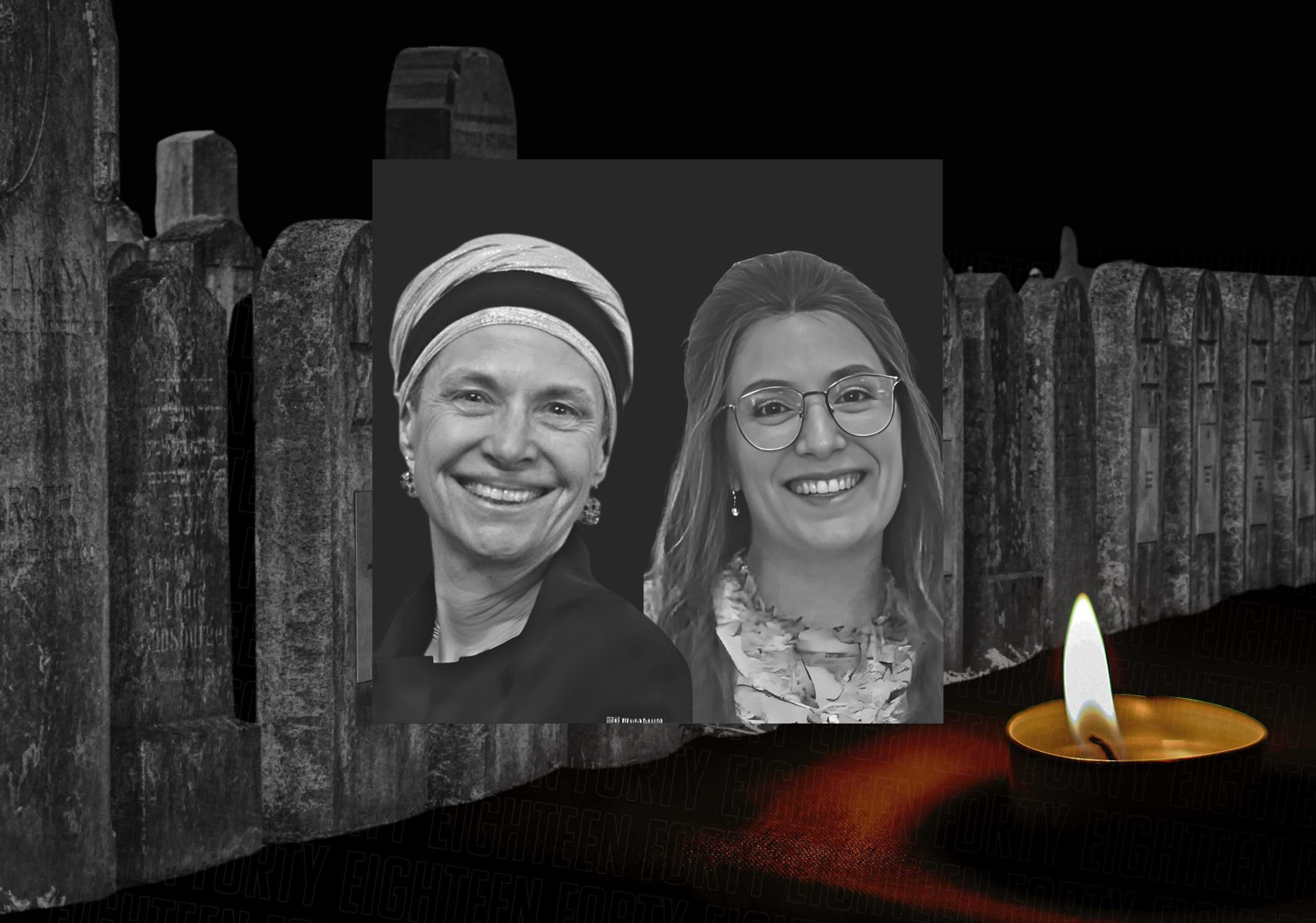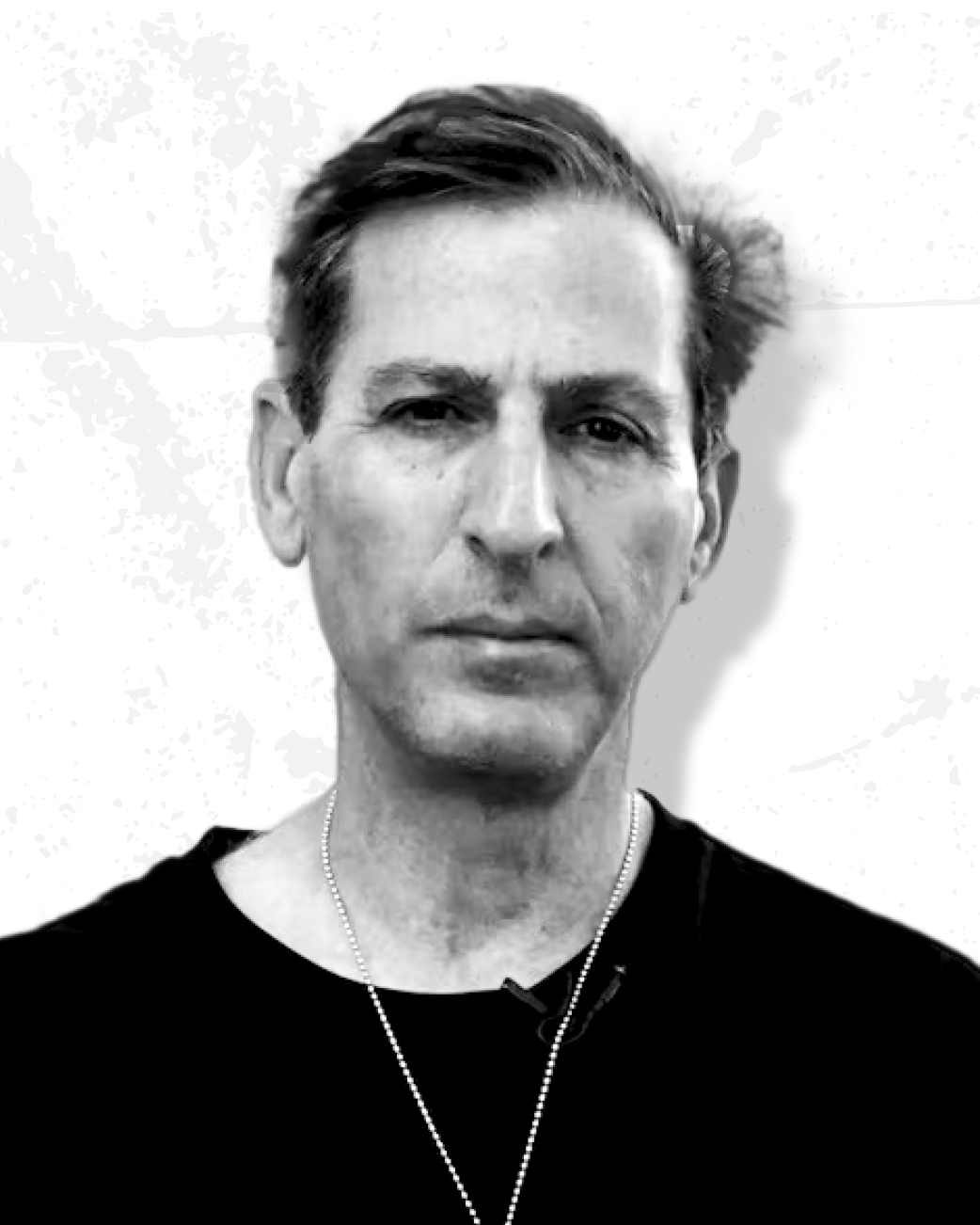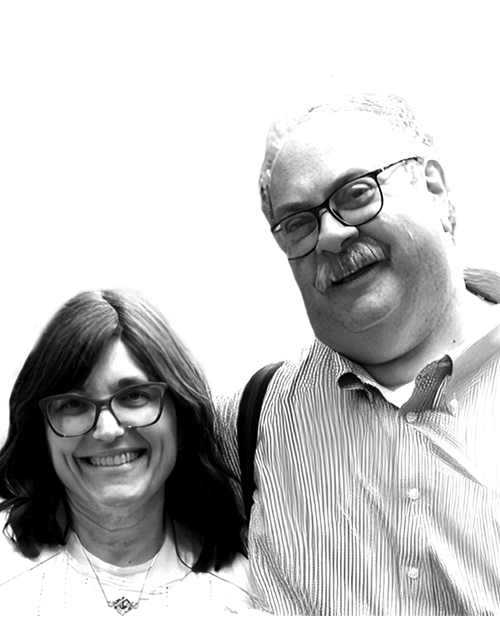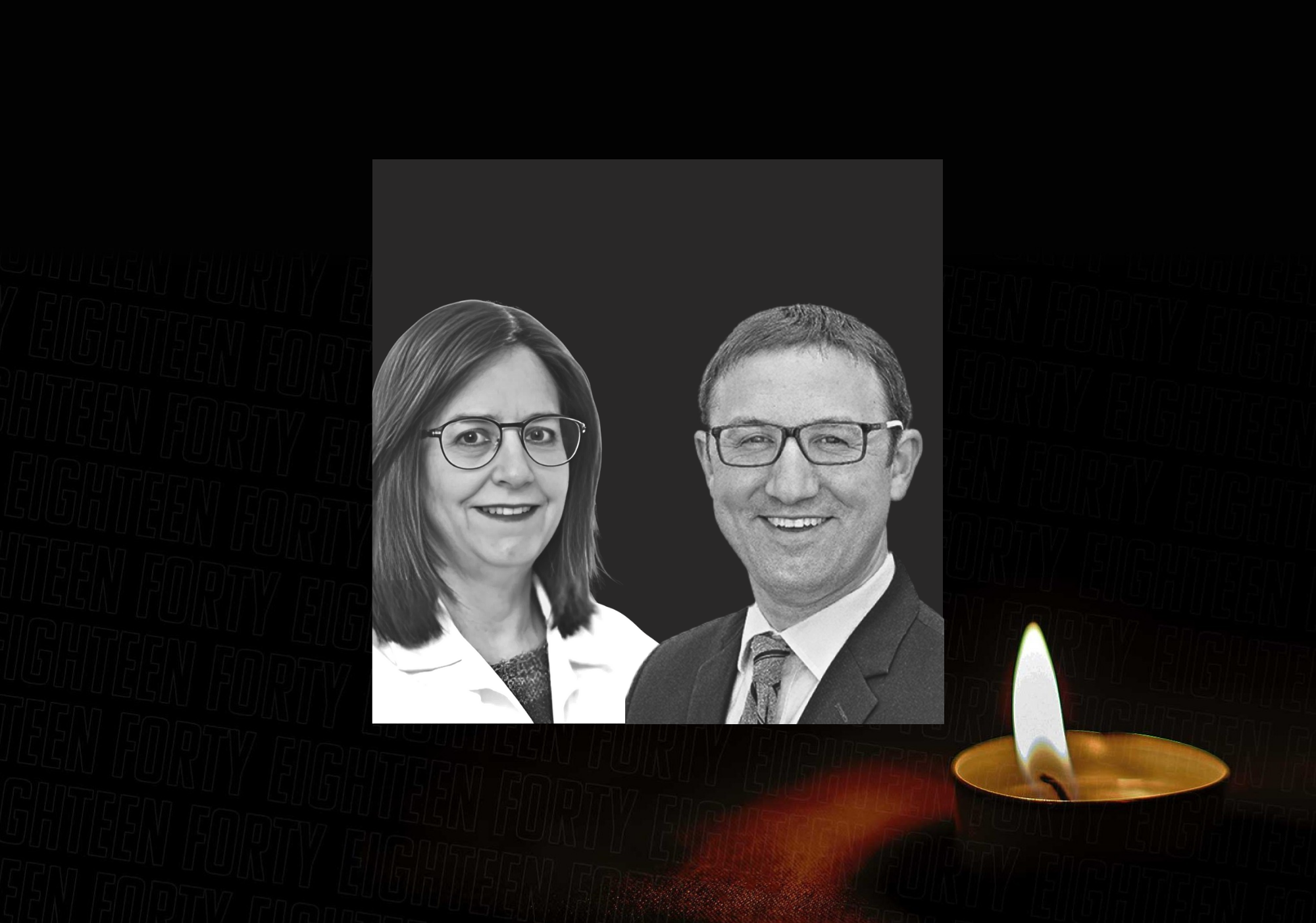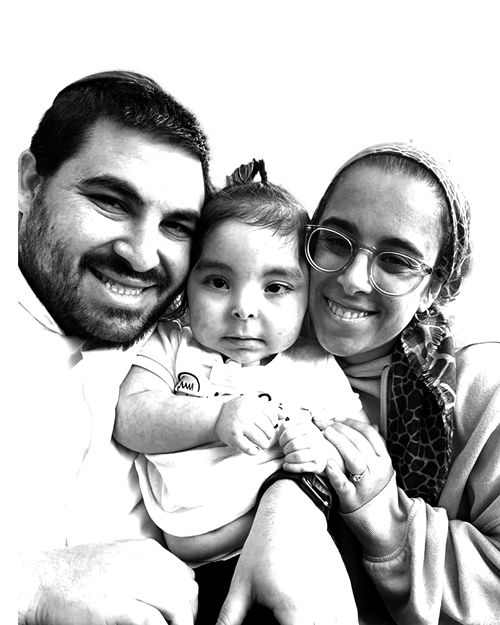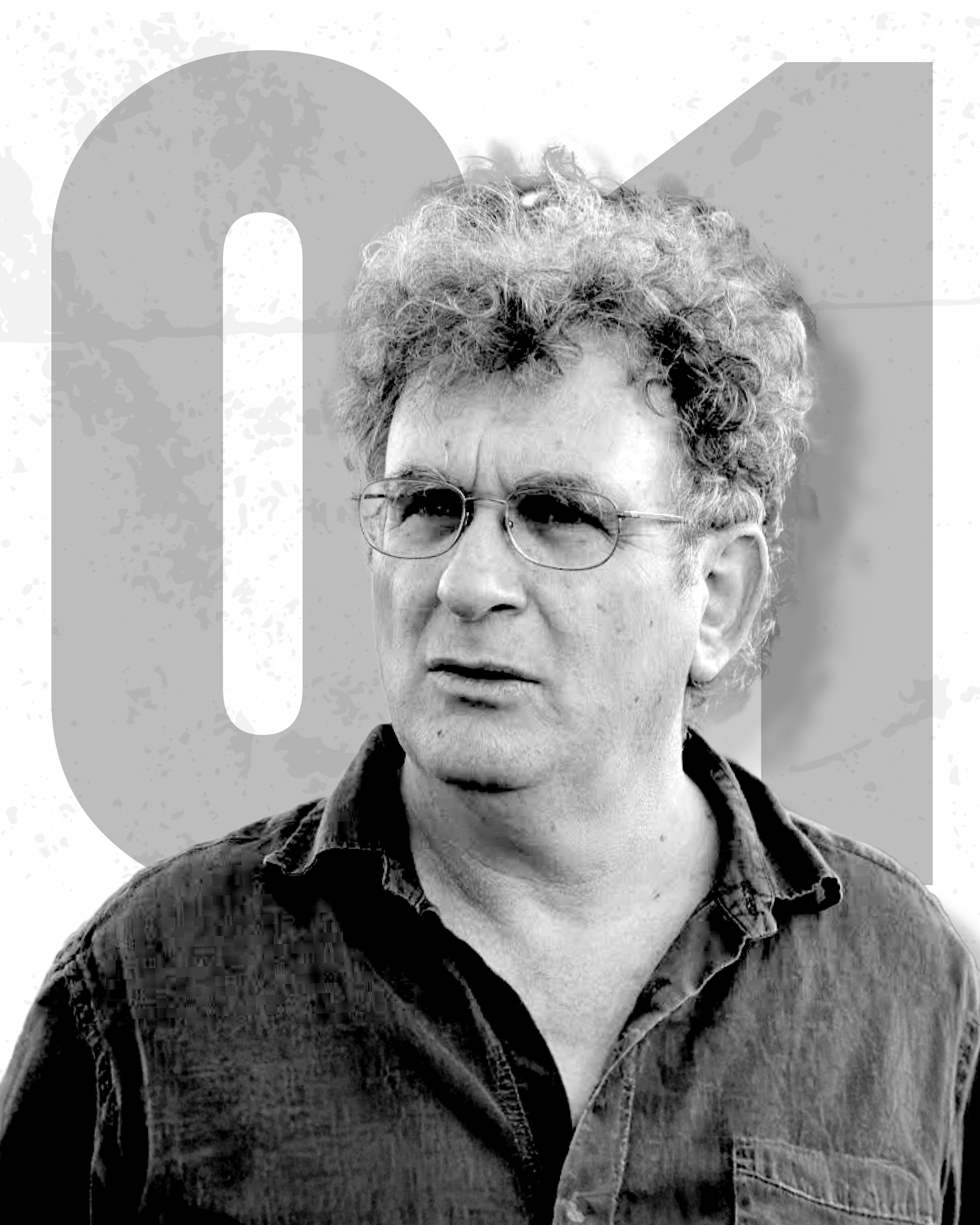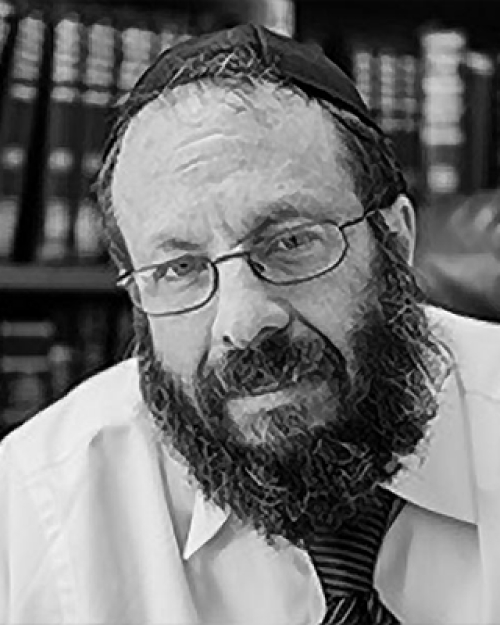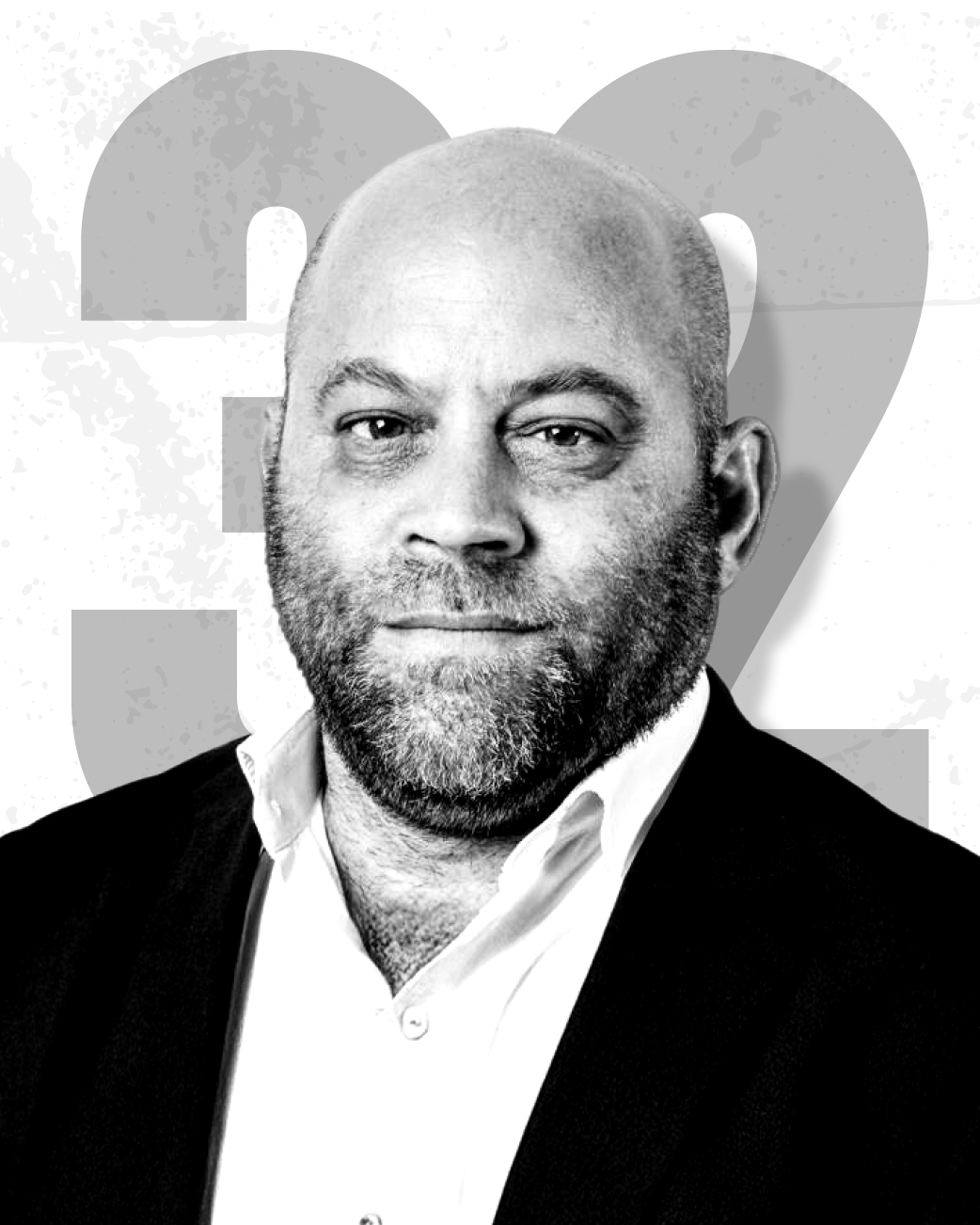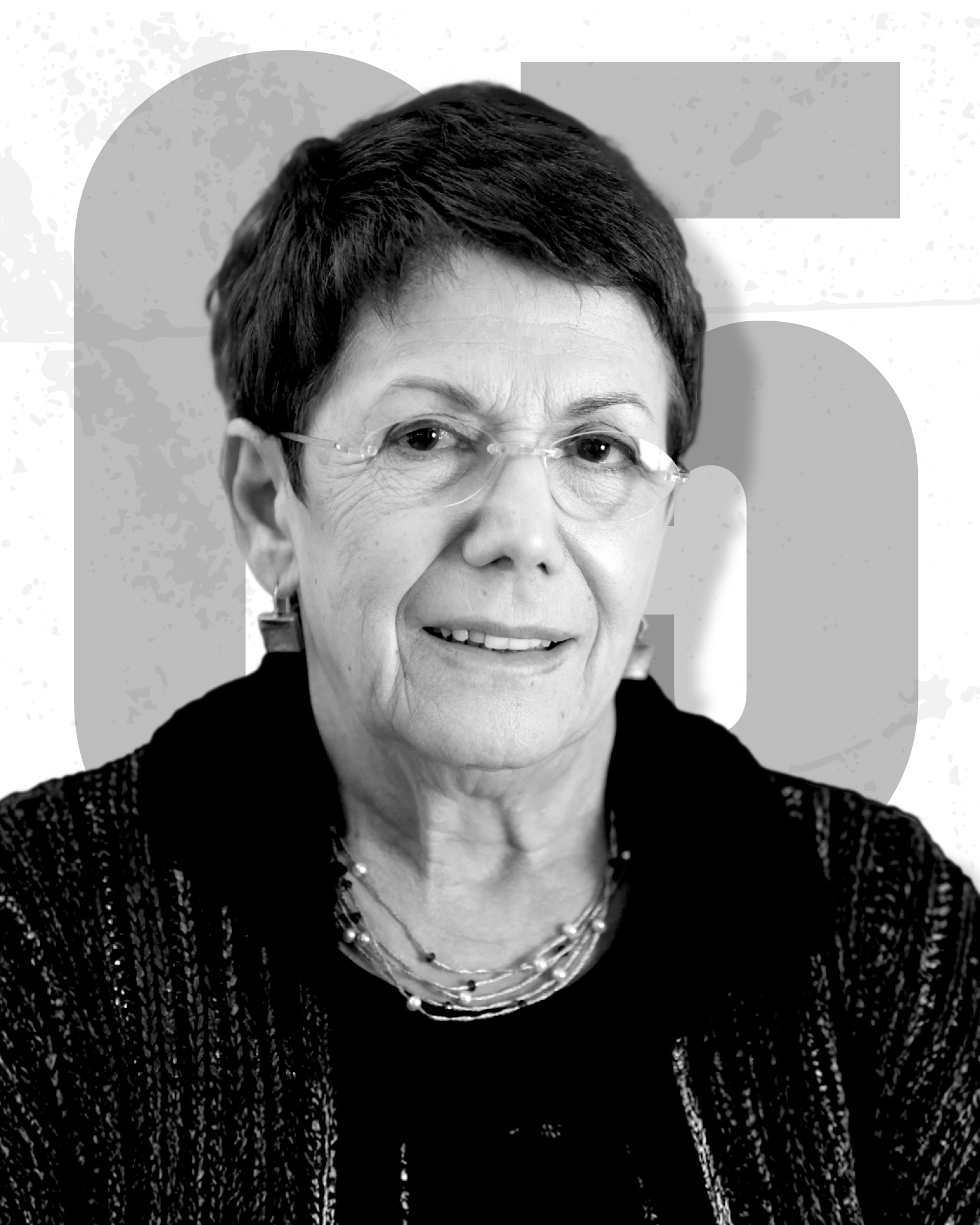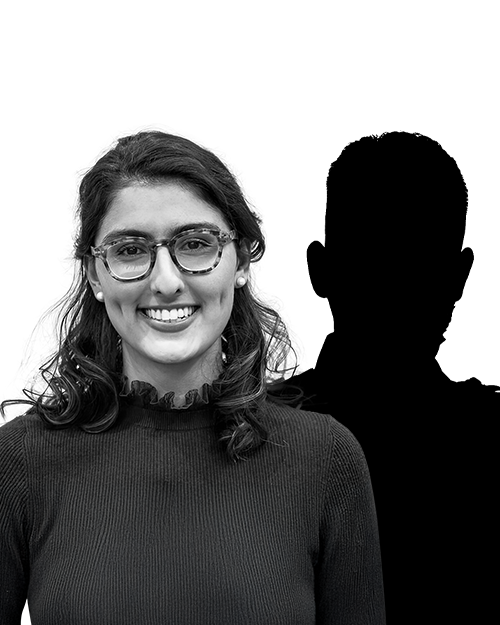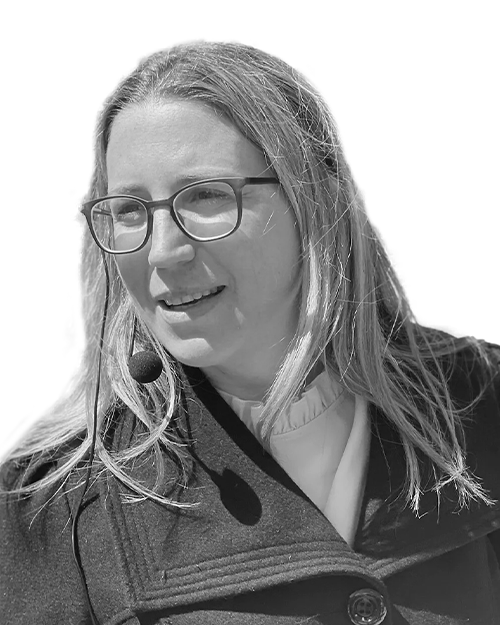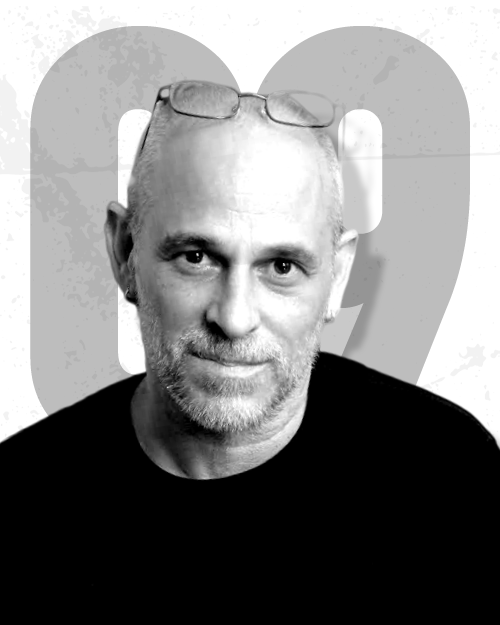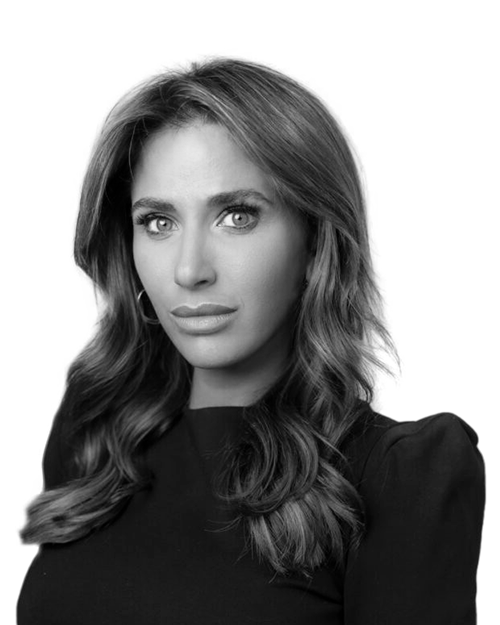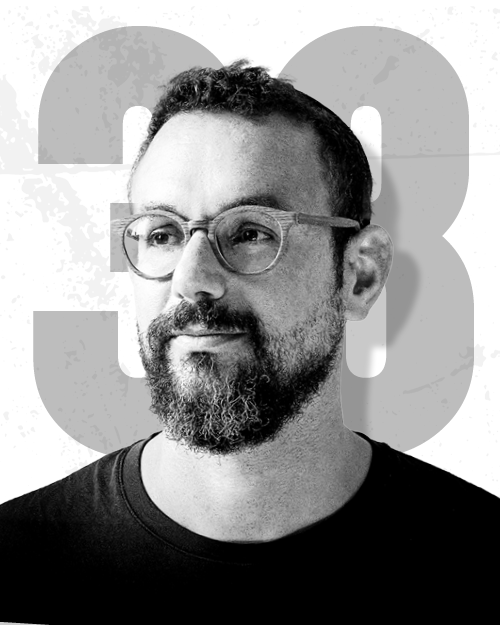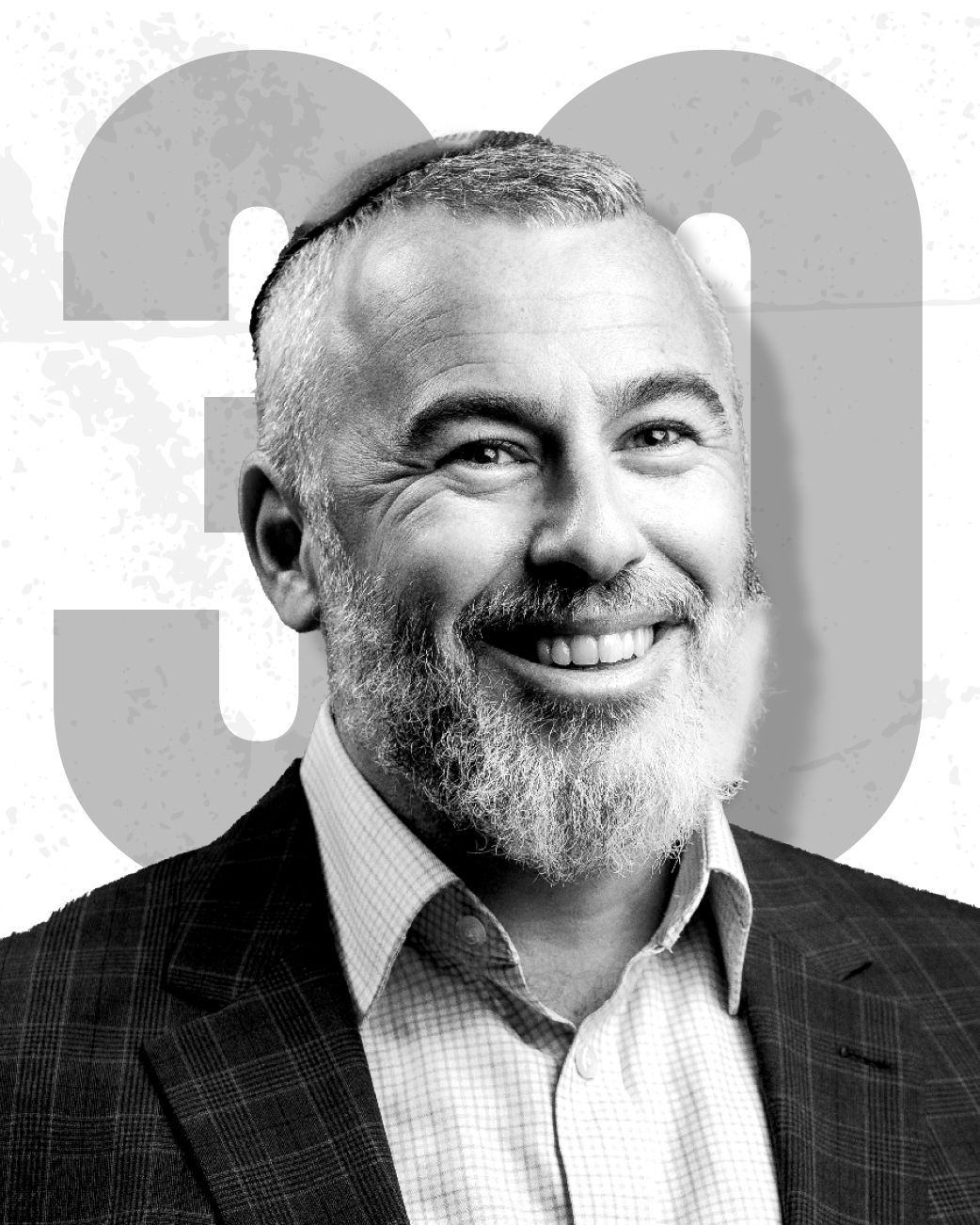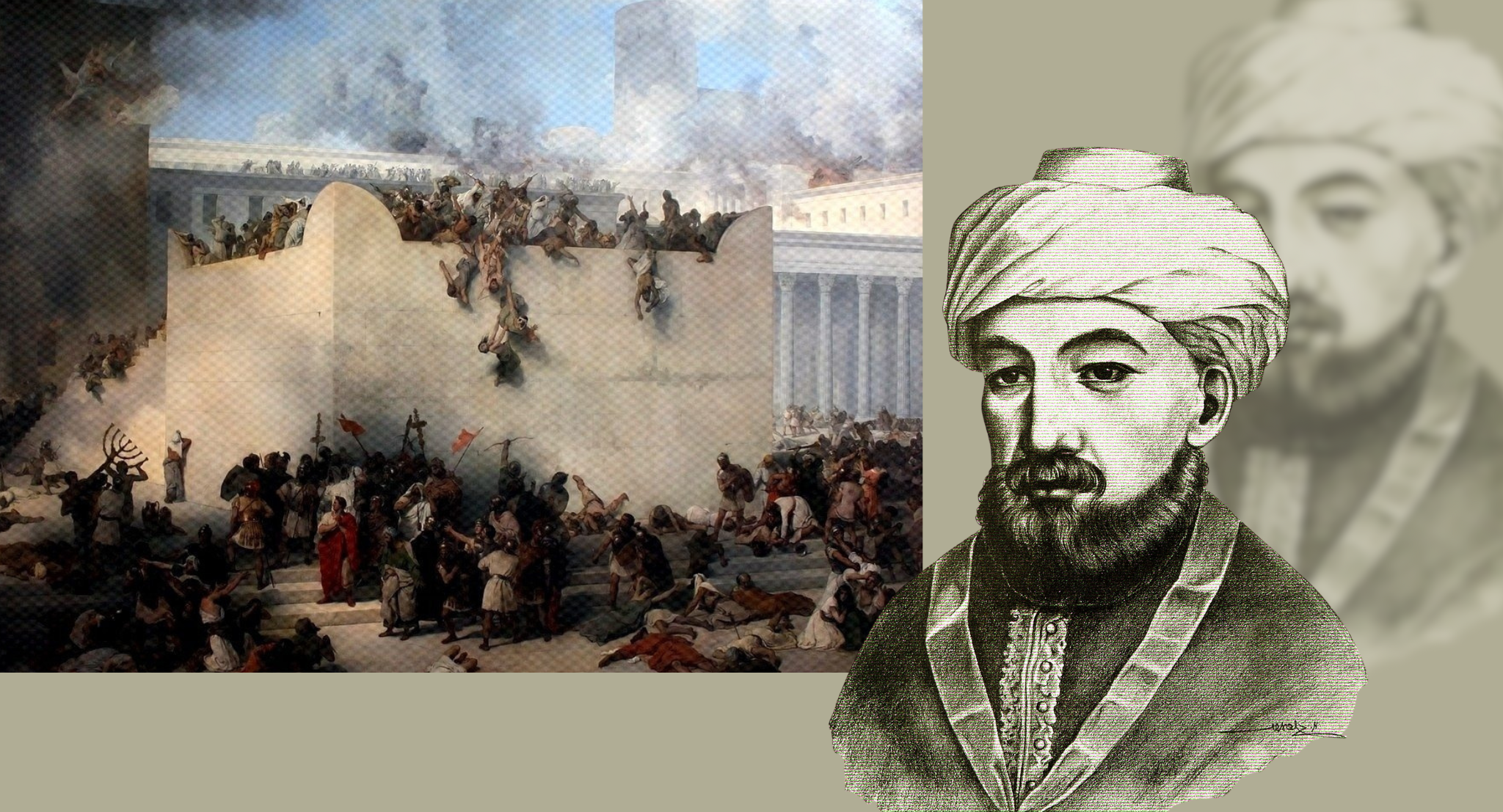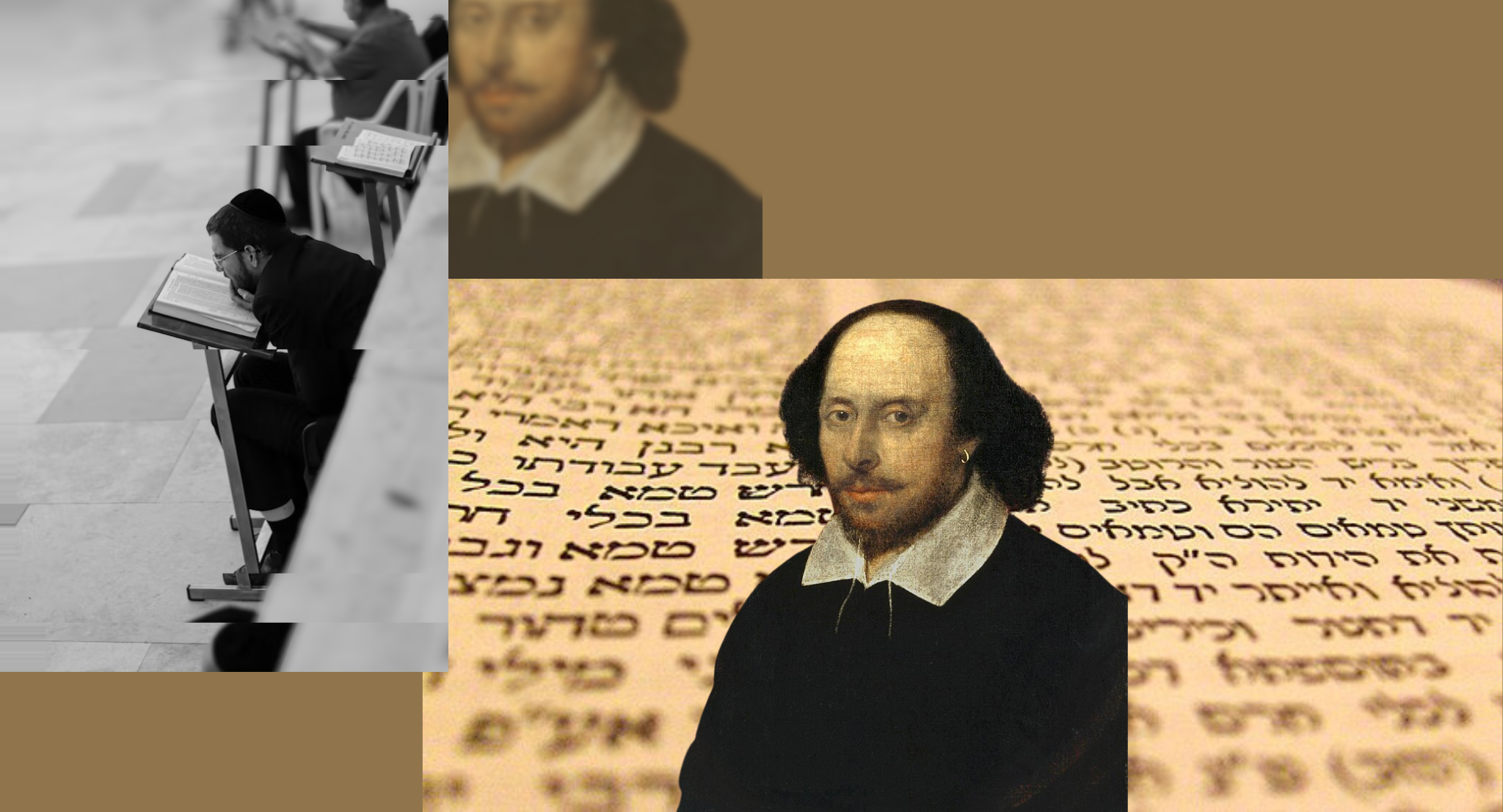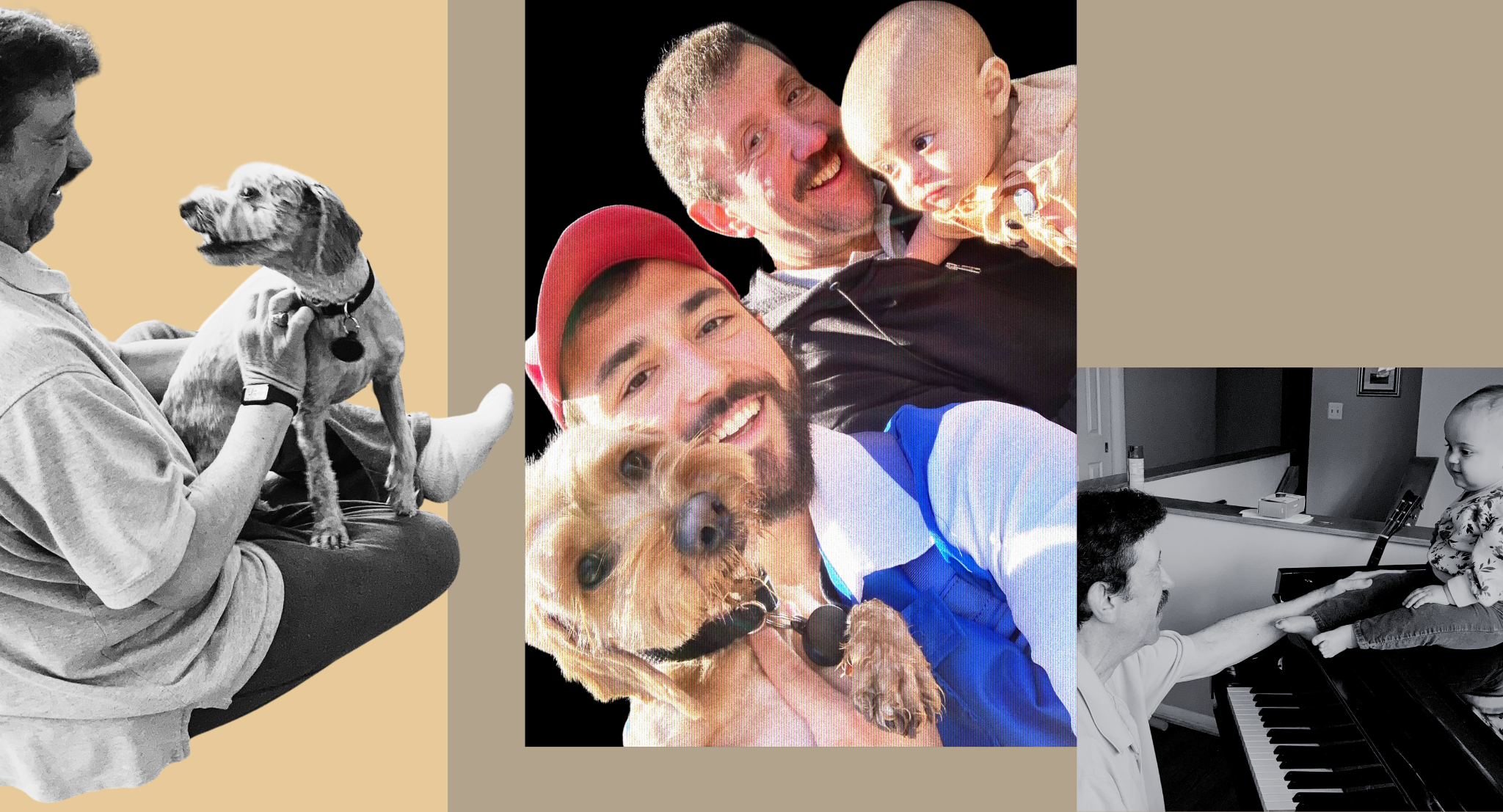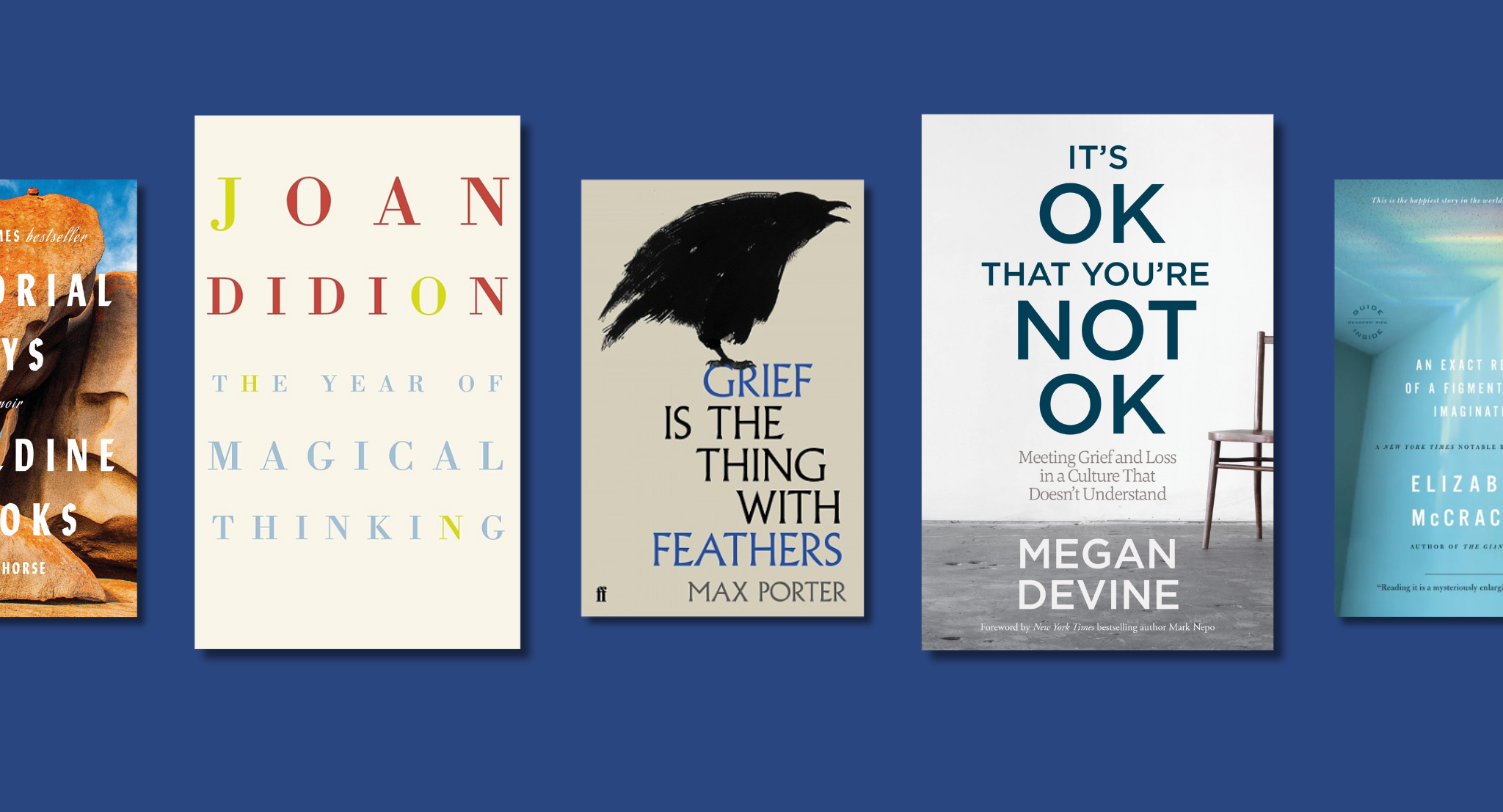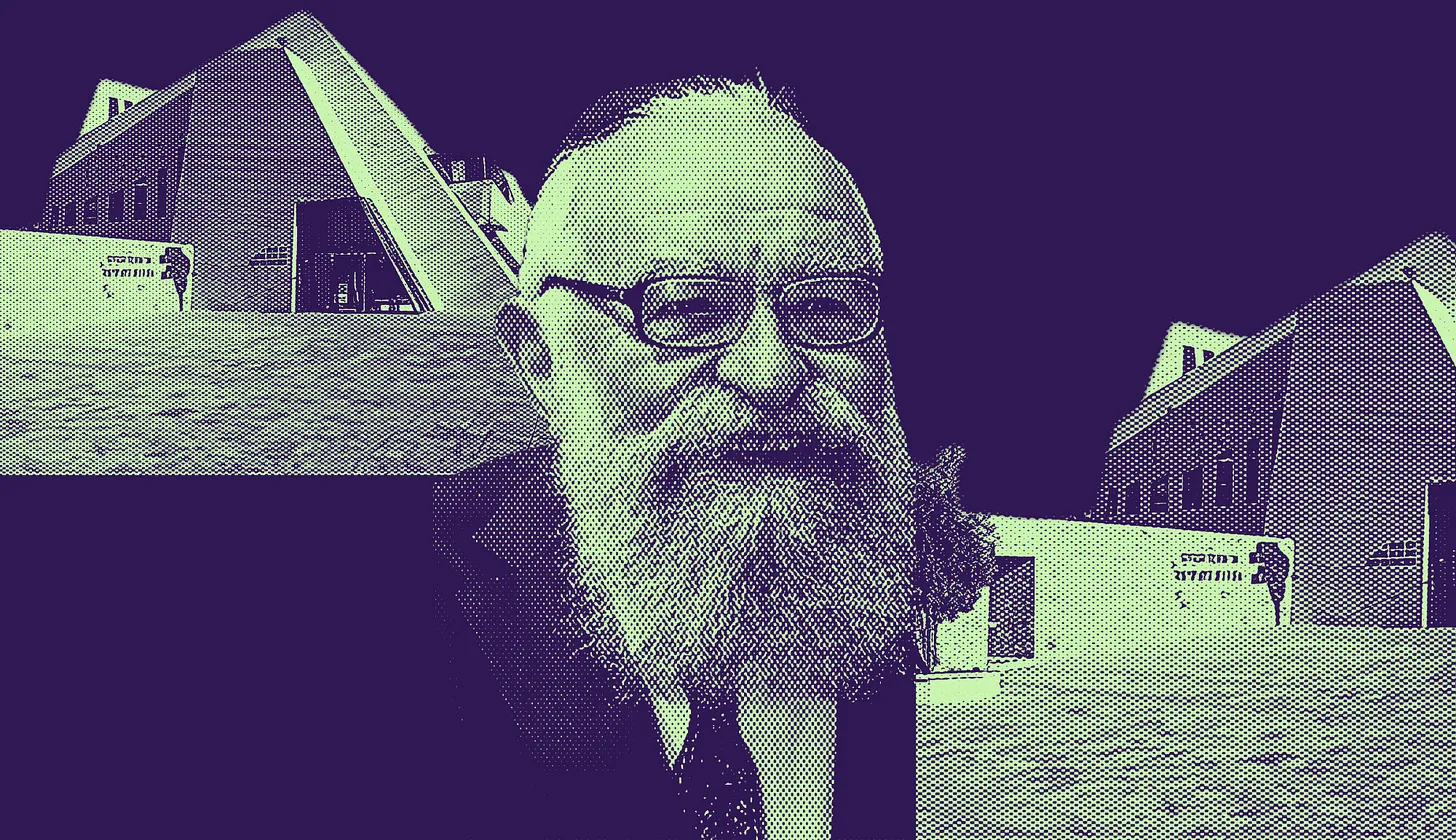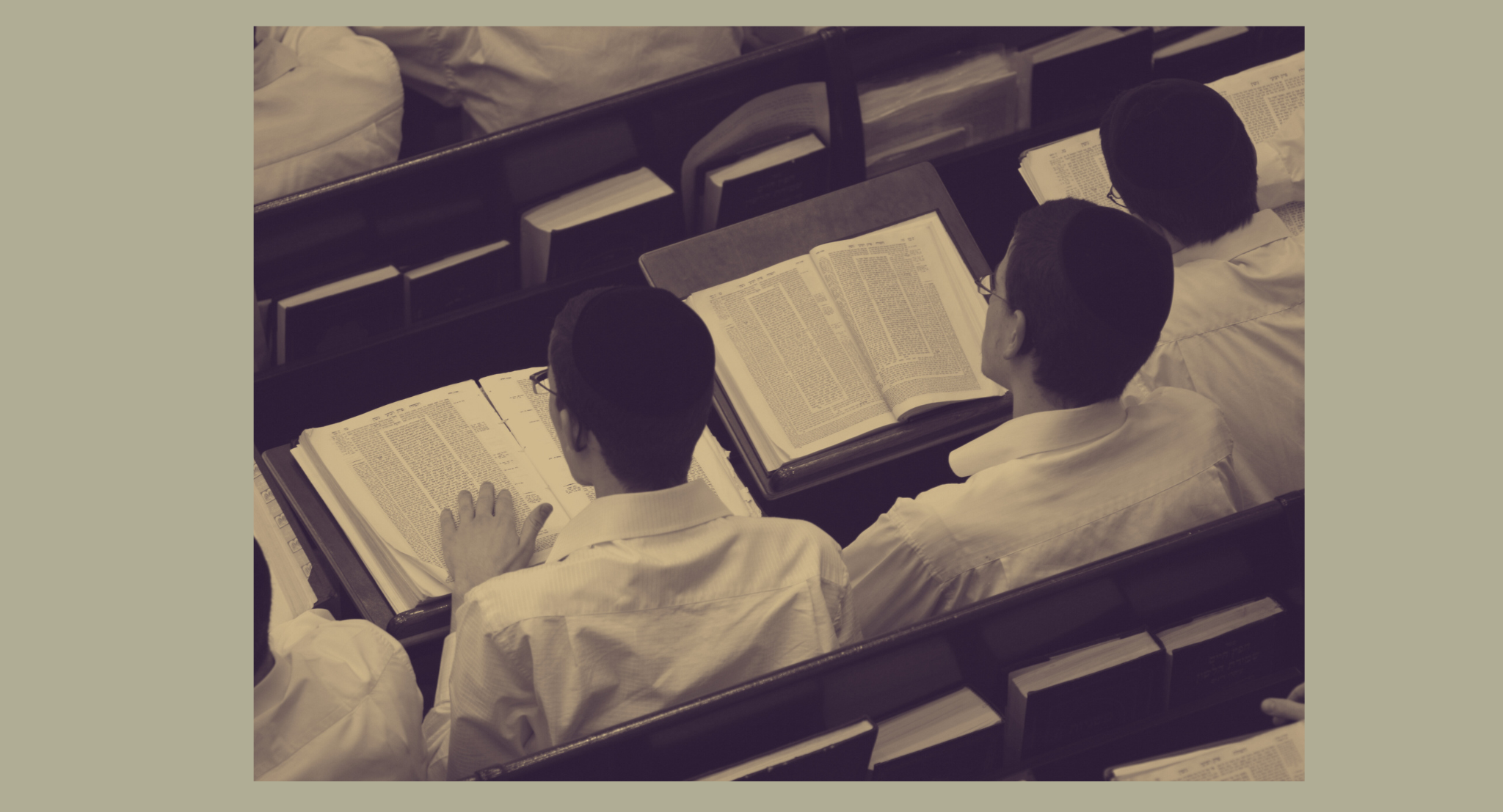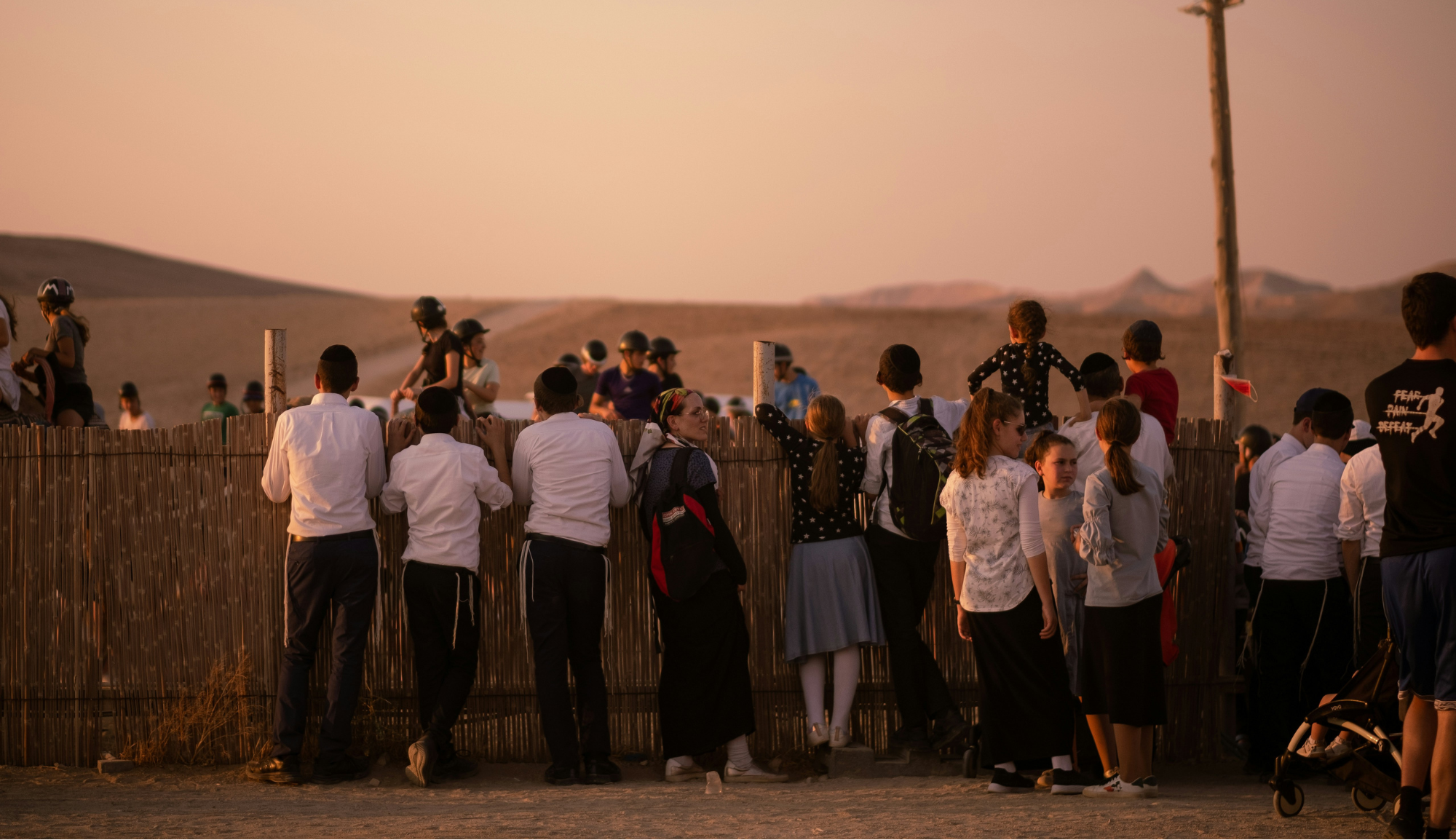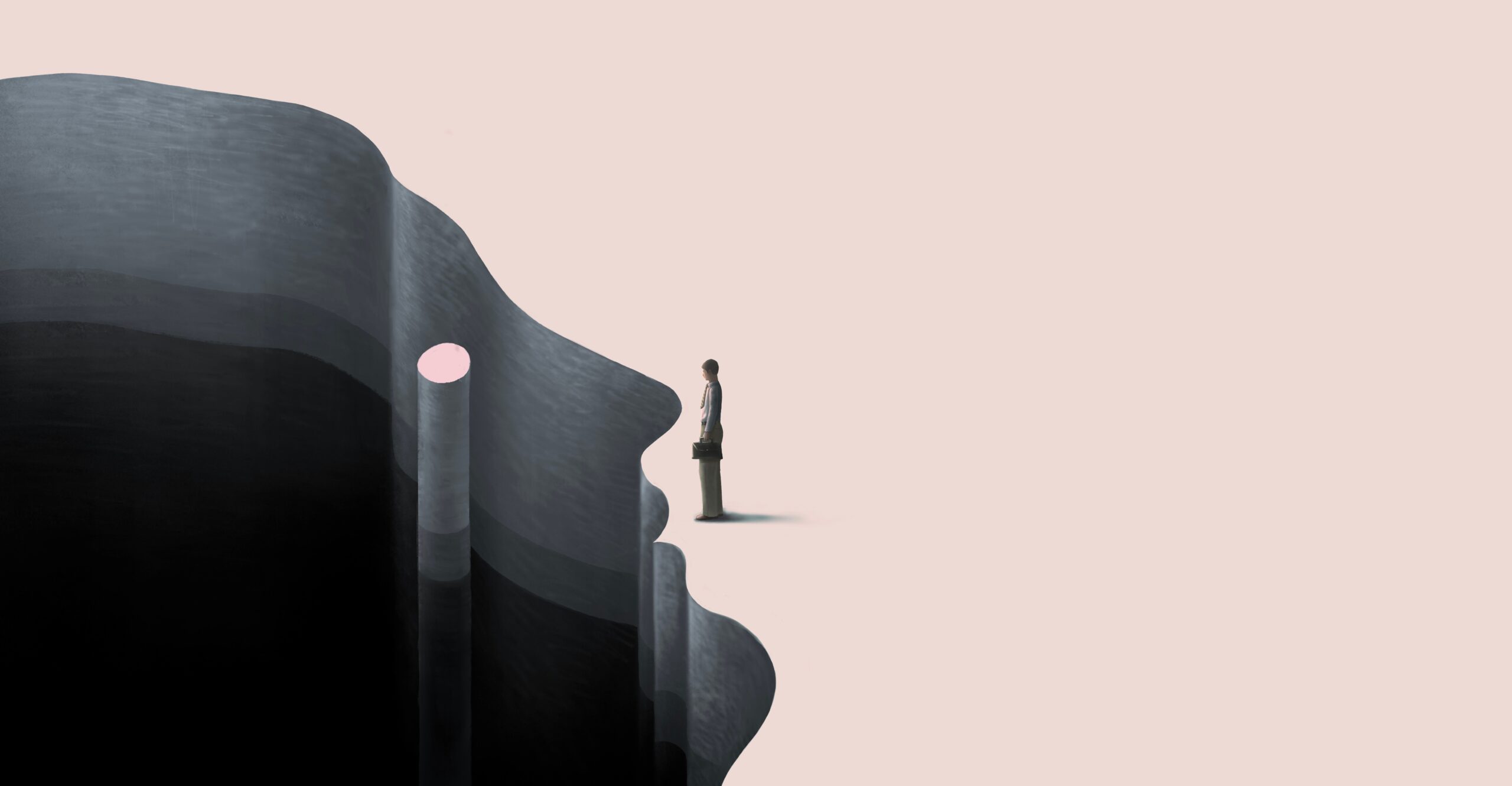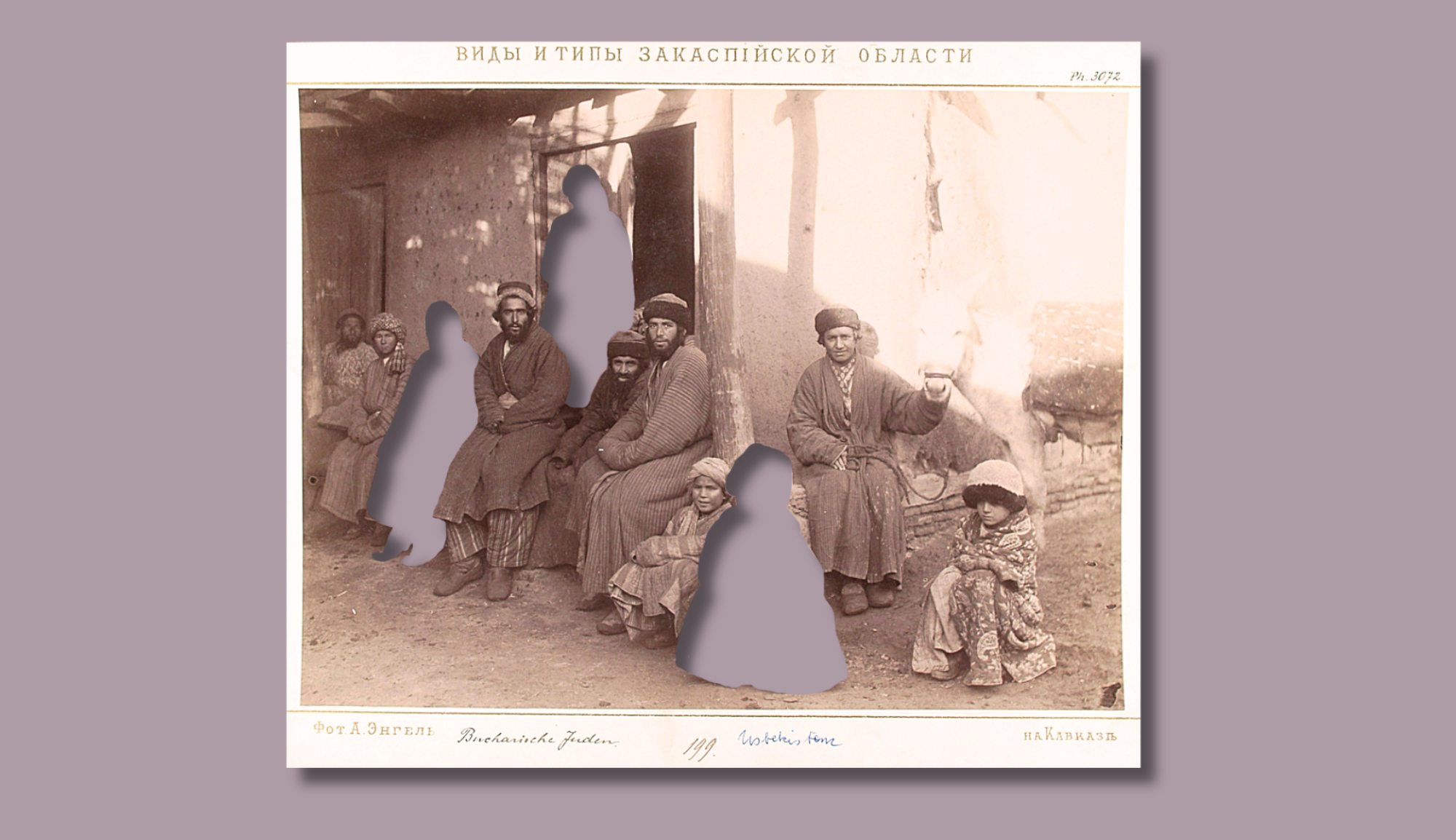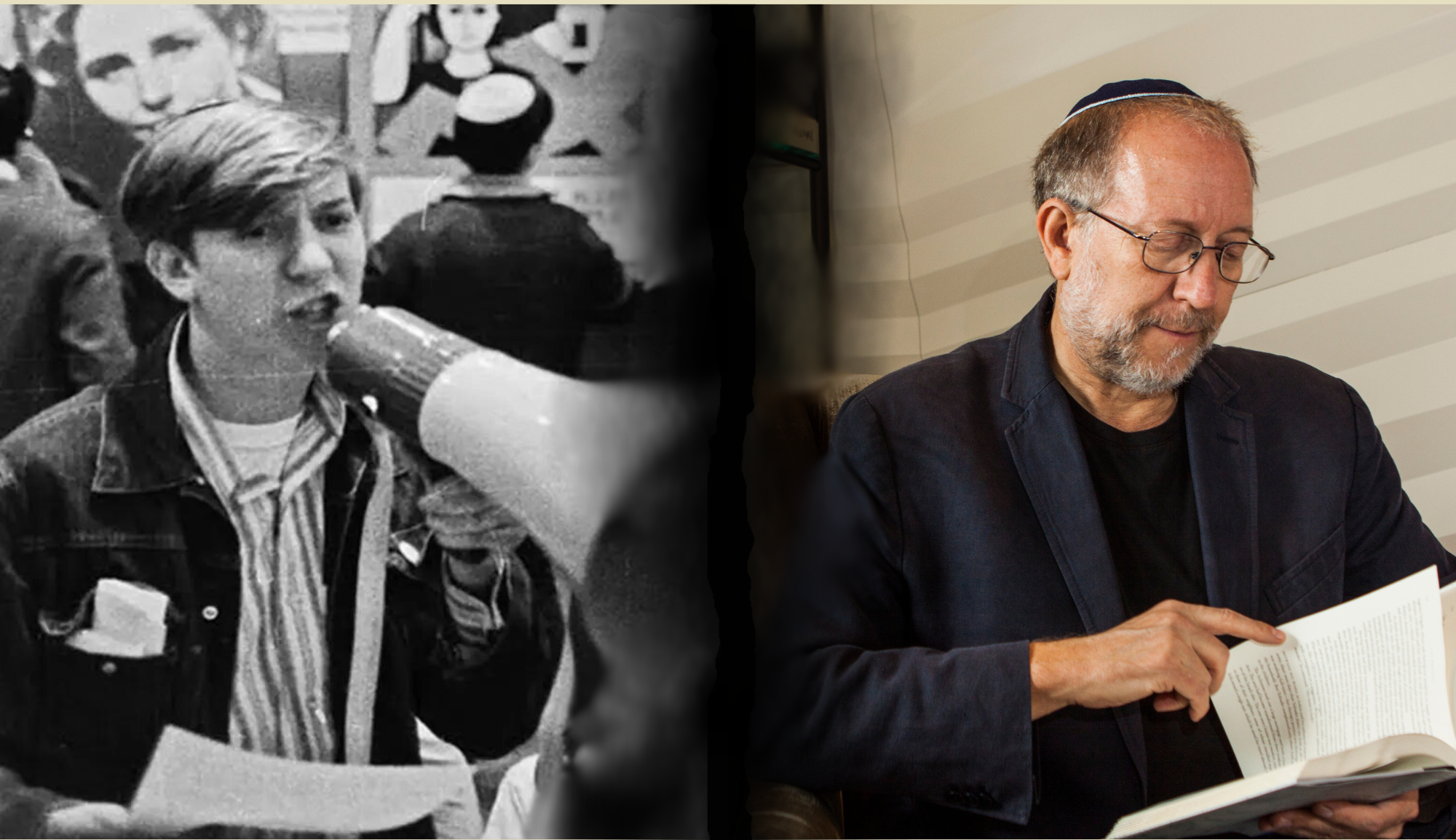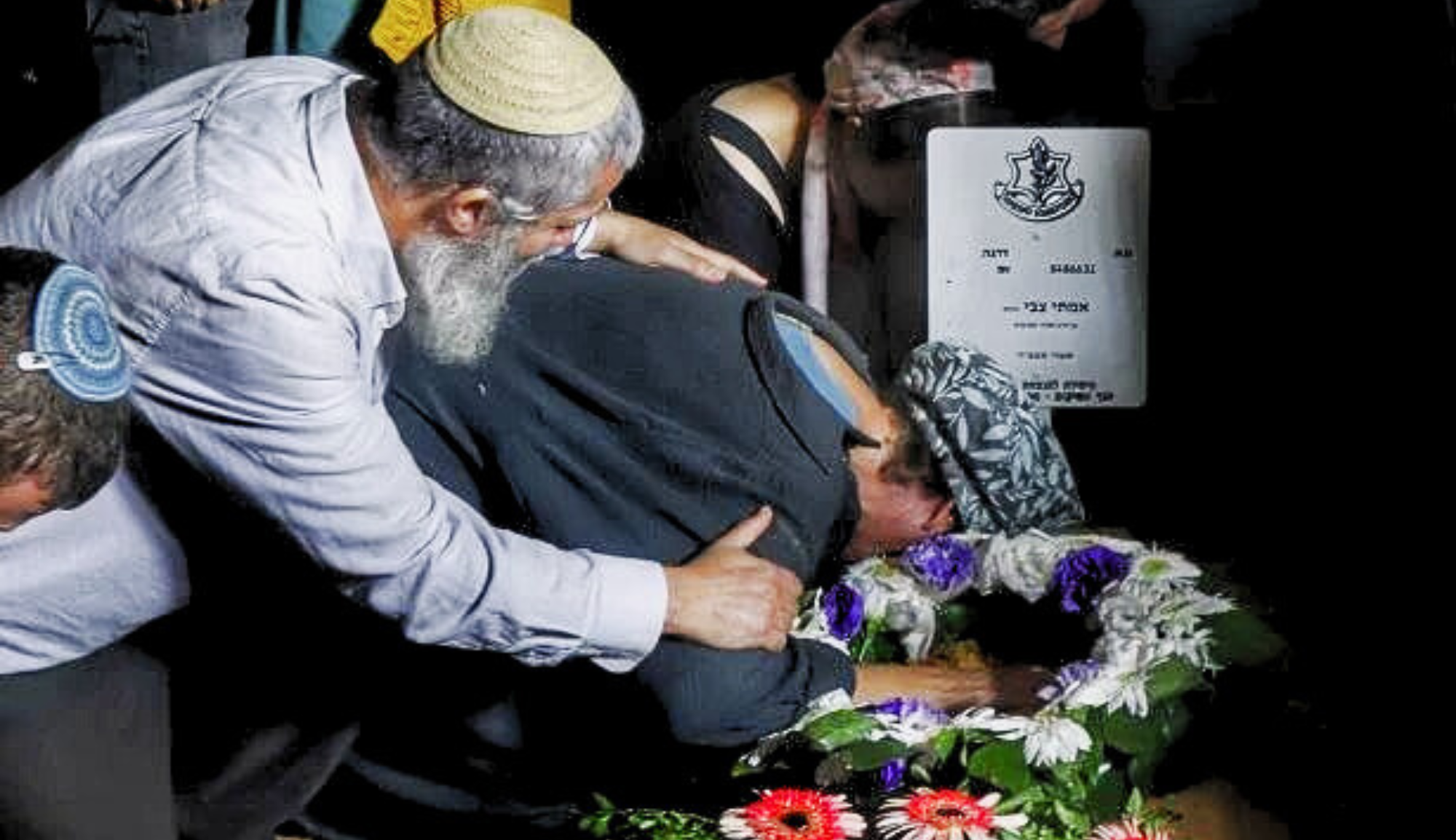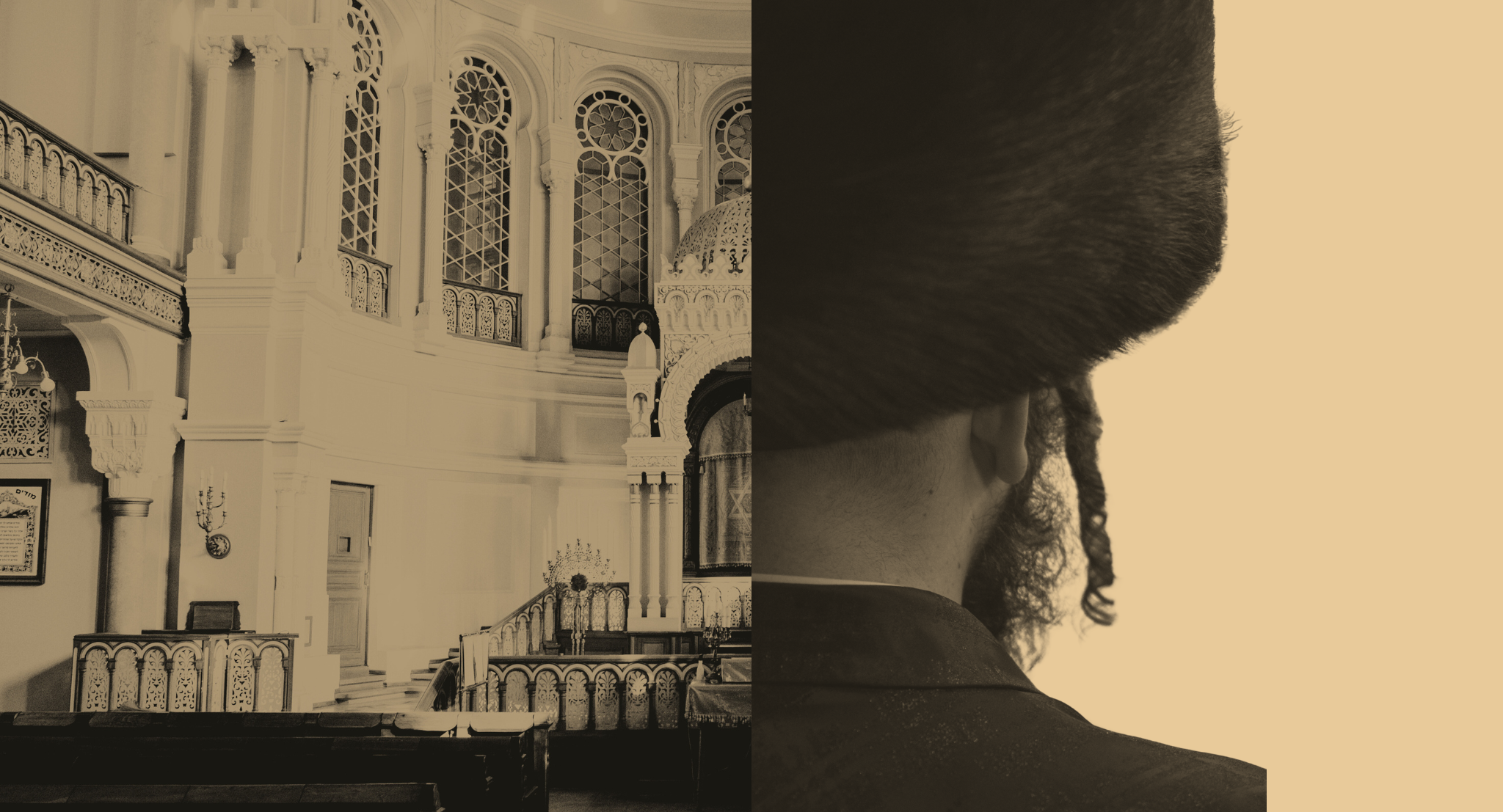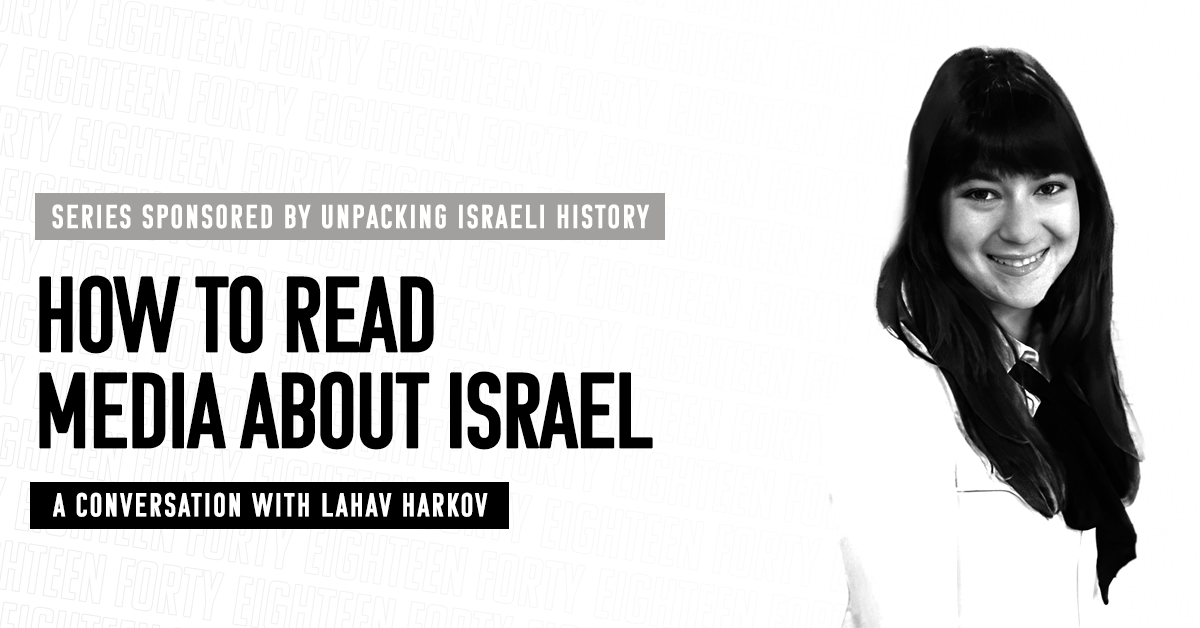
Summary
This series is sponsored by Unpacking Israeli History.
In this episode of the 18Forty Podcast, we talk to Lahav Harkov, senior contributing editor and diplomatic correspondent of The Jerusalem Post, about the media we consume regarding Israel.
Living in the diaspora and caring deeply about Israel can be challenging when one does not have first-hand knowledge of current affairs in the Land. Lahav Harkov helps us learn how to gain a deeper understanding. In this episode we discuss:
- How can diaspora Jews be best informed about what is happening in Israel?
- What do people feel is at stake in the debate over Israeli judicial reform?
- What are the key differences between American and Israeli politics?
Interview begins at 20:07.Lahav Harkov is the Senior Contributing Editor of The Jerusalem Post and the Post’s Diplomatic Correspondent, analyzing and reporting on Israel’s relations with the world, the Prime Minister’s office, the National Security Council, the Foreign Ministry, and more. She was the Post’s top analyst and reporter in the Knesset for over 8 years and was The Jerusalem Post‘s news editor and managing editor of JPost.com.
References:
Transcript
David Bashevkin:
Hello, and welcome to the 18Forty Podcast, where each month we explore a different topic, balancing modern sensibilities with traditional sensitivities to give you new approaches to timeless Jewish ideas. I’m your host, David Bashevkin. And this month, we’re exploring Zionism. This series is sponsored by Unpacking Israeli History, the podcast that gives a fresh perspective on some of the most controversial and interesting events in the country’s history. Catch the current season now and don’t miss the special three-part miniseries on the founding of the Jewish State.
Listen to Unpacking Israeli History wherever you find podcasts or follow the link in the show notes. 18Forty podcast is part of a larger exploration of those big juicy Jewish ideas, so be sure to check out 18forty.org where you can also find videos, articles, recommended readings, and weekly emails. I already got a lot of feedback from the fact that we are touching upon Zionism. I already feel that creeping sense of inadequacy that we’re not going to deal with the topic correctly. I have a very hard time articulating properly my approach to the grand idea of Zionism.
I have a lot of different feelings inside, but we already got feedback, a lot of feedback. But I want to call out two things that we have received that I think are really, really important. The first is somebody anonymously DM me. I don’t know who the account is and honestly, it’s so complicated, I can’t even read it. But they were upset that we are not talking more about anti-Zionism. Specifically, somebody reached out and wanted to make sure or wanted to ask if we’re going to be doing a deeper dive into the plight of the Palestinian people.
They wrote as follows, “I grew up with what sounds like a similar way you did vis-à-vis yeshivish non-Zionism and have personally come to the realization over time that despite being nominally nonpolitical, it was, in fact, incredibly right wing in the sense that nobody really even considered that Palestinians or really, any non-Jews have an inherent right to the land or really any human rights or dignity. Leaving Gaza was simply understood to be a mistake. Bombing Gaza is simply assumed to be justified.
Nobody even considered settlements a mistake or illegitimate and attacks of revenge following terrorist attacks and the like. We’re just naturally understood to be legitimate. To a significant degree, it was more Zionist than the Zionists in the sense that it didn’t even struggle with the modern assumptions around human rights, colonialism, democracy, et cetera, that Zionism has and has to.” And they reached out and wanted certain speakers and thinkers who deliberately take a little bit more of a critical stance to Zionism. I’m certainly not opposed to that.
I read a great deal of people from both sides of the aisle on this modern political. If I don’t read a ton on it, I’m not the most educated person on these issues. But it is something I absolutely think about and has something that I don’t think anybody needs to shy away from acknowledging the enormity of that question. I don’t have a fantastic answer for how to approach that. I don’t understand all of the details, to be quite honest. And I’m also unapologetic and trying to be forthcoming about my own perspective and where I situate myself vis-à-vis Israel.
Perhaps it is a luxury that I have in the sense that I am not mired in a lot of these messier political questions and that I take the approach, as I mentioned in my introduction, the last one, almost like this transcendent approach of my relationship to Israel, being first Eretz Yisrael through the sitter, through our national longing. And it doesn’t begin with the thornier political issues. I think we will touch upon some of them, but my guess is this listener who I think reached out in extraordinarily good faith and supports the work that we do, and I’m so appreciative of that, will still be disappointed.
I always feel bad. I never want to disappoint anybody, but I don’t think I’m going to do the deep enough dive into that angle of the issue as this particular person would have wanted. But I do think it’s important to acknowledge what we are and are not going to be covering. There’s a second email. This was, I don’t know, maybe a little bit more tongue-in-cheek. I’ll just say his first name, Johanan, reached out and he said, hi, another great episode, thank you.
Surprise that David, meaning me, takes the yeshivish/a good line of being pro Eretz Yisrael and viewing the Medinat as a bedieved side point at best. Okay, I definitely appreciate that you enjoy the episode. I want to clarify something and I want to make this absolutely clear. I don’t look at myself as in line with any particular institution or organization as it relates to Eretz Yisrael. It is deeply personal. It’s a part of my Jewish identity. It’s part of my identity and relationship to Hakadosh Baruch Hu, with God.
I definitely disagree with the statement of viewing the Medina as a bedieved side point at best. And the reason why I disagree with it, and just to clarify the point, because the person who reached out may have been a little bit tongue-in-cheek and with a wink, but I want to address that point. I definitely do not at all look at the state of Israel, God forbid, as a bedieved. Bedieved, I’m sorry, I didn’t translate that, means like a post facto justification like, oh, once it’s already here, I guess it’s okay. It’s not the ideal.
That’s not how I would articulate at all my relationship with the state of Israel. When I think of the state of Israel, I think of my great, great, great, great ancestors and imagining how they would react if I describe to them what we have and what, for many people, their reaction is to it. And my guess is that if you describe to a Jew living in the 16th century, in the 8th century that we have a government that sometimes does things that we love and sometimes does things that we maybe take issue with and should have done very differently and have very real issues.
I don’t think they would say, well, what you have is a bedieved side point. I think God forbid, I think that that undermines the longing and almost to me, it reminds me in a lot of ways of this scene from the movie Good Will Hunting, where Matt Damon’s character who plays Will Hunting, who’s this absolute genius, he doesn’t want to do fancy work. He’s a brilliant guy, but he likes hanging out with his buddies on the work site and he keeps coming back to this work site, even though he has these much more impressive job offers.
And he comes to the character, his best friend in the movie played by Ben Affleck, who I think in the movie, his name is Chuckie, and he comes back to the job site instead of taking this amazing job because he’s so brilliant, but it’s like working as a janitor. But he finally gets this amazing high-tech scientific job, but he decides, ugh, forget about it, and he comes back to the work site. And Chuckie, in the film, choose out Matt Damon, and this is what he says.
Chuckie:
So, when are you done with those meetings?
Will:
I think the week after I’m 21.
Chuckie:
Yeah, they going to hook you up with a job, or what?
Will:
Yeah. Sit in a room and do long division for the next 50 years.
Chuckie:
Probably make some nice bank, though.
Will:
I’m going to be a lab rat.
Chuckie:
Better than this (beep). Way out of here.
Will:
I want a way out of here for. I mean, I’m going to live here the rest of my life. We’ll be neighbors, we’ll have little kids, take them to little league together up at Foley field.
Chuckie:
Look, you’re my best friend, so don’t take this the wrong way. In 20 years, if you’re still living here, coming over to my house to watch the Patriots games, still working construction, I’ll kill you. That’s not a threat.
Will:
Why?
Chuckie:
That’s a fact. I’ll kill you.
Will:
What the (beep) are you talking about?
Chuckie:
Look. You got something none of us.
Will:
Oh, come on. Why is it always this, I mean, I owe it to myself to do this. Why if I don’t want to?
Chuckie:
Oh, no, no. You don’t owe it to yourself. You owe it to me. Because tomorrow I’m going to wake up and I’ll be 50. And I’ll still be doing this. And that’s all right, that’s fine. I mean, you’re sitting on a winning lottery ticket. And you’re too much of a (beep) to cash it in. And that’s (beep). Because I’d do anything to have what you got, so would any of these guys. It’d be an insult to us if you’re still here in 20 years. Hanging around here is a waste of your time.
David Bashevkin:
I think in many ways, that’s how previous generations may look at us, that here we are sitting on a winning lottery ticket, that we have a Jewish state. And for us not to fully embrace that with all of its ideals, with all of the yearning that led up to it and fully embrace what we have, with all of its imperfections, with all of the difficulties, and with all … But to look at it as a bedieved side point, to me, is impossible. There have been too much yearning and too much longing for this moment.
And that if you were to tell a Jew in the 11th century that after 1000 years, after the destruction of Beit Hamikdash, they’re still waiting. And then 1000 years later, we finally have a Jewish state. And you know what? It’s a side point. The main thing is Eretz Yisrael, I think that marginalizes it too much. What I really was trying to say in that introduction from the opening episode and I just want to be clear about this, is that I don’t believe the expression of how somebody expresses their love of Zionism needs to be very rigidly limited.
I think that that’s when it already begins to take the shape of more politics. I think that there are many ways to have a relationship, whether it’s the state of Israel, whether it’s Eretz Yisrael. There are many ways to nurture, to cultivate, and to nourish that relationship. There are ways that that’s done in the modern orthodox community. There are ways that that’s done in the non-orthodox community. There are ways that’s done in the Hasidish community, in the Haredi community.
And what I really meant to be saying is that I don’t think any one community has a monopoly on how we expressed or the right way to articulate our Zionism. I think that there are communities that are sometimes dismissed as being either anti-Zionist or non-Zionist. And I think instead of calling it non-Zionism or anti-Zionism, I don’t look at myself as a non-Zionist or anti-Zionist. I look at myself as expressing my ahavah of Eretz Yisrael, Medinat Yisrael and my gratitude for what we have in a way that’s a little bit different maybe than the standard line of how it’s educated or inculcated in modern orthodox schools.
And that’s okay. It doesn’t mean that I don’t have that relationship. And I think sometimes when you don’t express it in the mainstream way, people begin to question whether that relationship exists. And all you need to see is during times of difficulty in Israel, when you see people sitting shiva, I was just watching a video yesterday of Rabbi Dee in a fraught who was sitting shiva and in the front row, the Rebbe from Sadigura, a Hasidish Rebbe, said this amazing story.
If you weren’t able to hear what he said, he’s telling the story of the third Sadigura Rebbe who, when the Nazis entered Vienna, one of the ways that they degraded them was the public humiliations. What they did is they would make them sweep the streets of Vienna in front of all of the laughing Nazis and all the citizens there. And the Rebbe made a promise and he said, “If I’m ever able to escape this and God will stay with me,” he made a promise that he’s going to wake up every morning, he’ll gladly sweep the streets of Israel.
And when he finally made it to Israel and he arrived in Tel Aviv, he would wake up every morning and he would sweep the streets around his house in the early morning. I don’t know what you want to call that, you want to call that Zionism, you want to call it non-Zionism, I’m sure that that Rebbe, I don’t know enough about them, had very real issues and wouldn’t necessarily call himself a Zionist. What I’m really trying to articulate is that this love, this very real love for what we have has many ways of being expressed.
And I don’t personally pigeonhole myself into one way that I express it and I really find it very moving when other movements that may differ very real ways from the mainstream Zionist movement, even religious Zionist movement as we understand it today in different very real ideological ways, some of which will explore, but they’re still able to express that love and that longing for what we have right now. I find that incredibly moving. I hope that clarifies it a little bit.
And really, what I want to talk about today is the way in which I think many people relate to Israel, and that is specifically through media. I think most people, when they think about Zionism, they relate to about a day-to-day basis, unless you’re living in Israel, which I know many of our listeners are, but those who are unable to live in Israel, we’ll talk about that too, of course. Much of our relationship comes from the articles that we’re reading of what’s going on.
And I think that just like a basic landscape of what is the media landscape from what you find in Israel is so important and understanding that all media, all media is mediated. You are not engaging in the thing in and of itself. You are getting it through an interpretation. It’s almost like targum, like a translation. Media is always reality translated, and I think a lot of people get very worked up by the different translations of what is going on in Israel. And, of course, much of that is important.
I grew up in a home where my father, I remember from the youngest age, get very worked up about the New York Times, the way that they cover Israel. That outrage was never something that I fully related to. My father would affectionately call it the New York Slimes. I’m sure many of our listeners grew up in similar households with people getting worked up. I don’t know if this is dangerous for me to admit, I subscribe to New York Times and I read it. I don’t always love their coverage of Israel and other issues, but I find a lot of stuff there really interesting.
And I think it’s important to read things that you disagree with. There are many things that I read that do not take a typical sense. I am a subscriber to Jewish Currents. I mean, that might be the most controversial thing that I’ve ever said on here is actually a gift. I’m going to say thank you to Avigayil Halpern, who I think gifted me a yearlong subscription to Jewish Currents. There are many things in there that I would label anti-Zionist, that I vehemently disagree with, but I find understanding.
And just as long as I know what I am reading, as long as I understand the point of view of the translator and don’t think that I am reading something in its native language, so to speak, I am not in Israel itself, I am not in the situation, I’m not in the political movement. I’m reading things in translation that I’m able to engage with a very wide and diverse segment of Israeli news and politics. There is actually a fantastic book that I want to recommend. There are some issues that I took with it.
But it’s one of these books that I read over Shabbos, as many of our listeners know and people who follow me on Twitter know. I try to read a book every Shabbos. And a few months ago, I read a book published by Academic Studies Press, that’s actually the publisher who also published my own book, Synagogue. But they published this really interesting book called Print to Fit: The New York Times, Zionism and Israel from 1896 to 2016, written by Jerold Auerbach, where he really scoured the New York Times from the very beginning and tries to explain why there is this very fraught relationship between the New York Times and Zionism in a way they were almost born together.
Herzl first published his pamphlet, Der Judenstaat, the Jewish State, six months before Adolph Ochs actually bought the New York Times. And he has a lot of really interesting stuff in there. The stuff that’s obviously the hardest to read, the most painful to read is the way the New York Times covered the Holocaust. They very deliberately took a non-Jewish specific slant to a lot of the horrors and atrocities of what was going on there. They didn’t want to be accused of being a Jewish newspaper.
And there was a staggering silence through much of the Holocaust and the way that it was covered in the New York Times, at least according to this book. One thing that I really appreciated in the book is when Sulzberger was running the New York Times, he actually resigned from his shul after they played Hatikvah right next to the Star Spangled Banner. That offended him. But he resigned from Shearith Israel, the Spanish Portuguese synagogue.
He would absolutely have hated Yeshiva League sports games where I think Hatikvah and the Star Spangled Banner are played right next to each other every time. But not everything is so negative in here. And it’s really a fascinating lens to appreciate everything that the state of Israel has grappled with. There’s one story that really jumps out at me that I’d like to read, and it relates in many ways to Hatikvah, the song Hatikvah, which has its own fascinating and storied history that we’re not going to get into now, the person who wrote it.
I know Rav Pini Dunner has written about this. You could get his book, Mystics and Mavericks, that discusses the person behind the writing of Hatikvah. It is a song that absolutely tugs at my heartstrings. I have a hard time listening to it and not getting emotional. And there’s this just absolutely incredible story that’s quoted in this book by Jerold Auerbach. And he writes about an article that Gertrude Samuels wrote. She was talking about the boat rise of displaced persons, the DP camps in Germany, to these fledgling kibbutzim in Eretz Yisrael and Israel.
And she wrote, “It was a miracle born of years of longing, guided by a 20-year-old Polish woman who had survived Auschwitz. Samuels took up residents in a camp. She then accompanied nearly 900 refugees on the two-day train ride that transported them from the country of their persecution to the ship that would bring them to their country.” Gertrude Samuels, this photojournalist for the Times, went on the train ride with these people to bring them to Israel.
It was she noted an all Jewish ship, no one saluted anyone and the captain danced the Hora with his passengers every night of their five-day journey from Munich to Haifa. Arriving in port, there was a long aching silence among the passengers. Then in a swelling symphony that began with children’s voices, everyone saying, “Hatikvah.” (singing) They sang Hatikvah as though they had been storing it like some treasure and were now showing it to all in an emotional purge with tears flowing. Their role as Israeli citizens had begun.
And that is the winning lottery ticket that we all sit on in this generation, the gift that is the modern state of Israel, which is the manifestation as she writes in that article, A Miracle Born of Years of Longing. And it’s a miracle that I continue to appreciate and hopefully, we’ll share some of which today with our conversation. And I really want to just add a special thank you, she was on maternity leave. There was a lot going on in Israel when we had this call, but she took the time and she’s so generous and so gracious.
She’s a senior contributing editor and diplomatic correspondent of the Jerusalem Post. Here is our conversation with Lahav Harkov. I want to introduce someone who I’ve never met personally that we’ve interacted many a times on social media. This is really, I want to say at the outset, remarkable that you are taking the time. Can I say you are on maternity leave right now?
Lahav Harkov:
Yes.
David Bashevkin:
And it is right before Pesach. And on top of that, there is just remarkable jaw dropping things happening in the state of Israel. And with all those three things happening at once, my gratitude that you are taking the time to speak with us means so, so much to me. Really, thank you so much, Lahav.
Lahav Harkov:
Sure. I’m really happy to be here. I really consider you to be the bright spot on my Twitter feed. When everybody is going crazy, you always have good things to say.
David Bashevkin:
Someway, somehow, even being a bright spot on social media and on Twitter, you still can manage to infuriate people. And I’ve done that from time to time. But, yes, it’s what I try to do, which is why I feel so out of sorts talking politically. And I want to open up with a question because I think when it comes to Israeli politics, particularly Israeli politics, and we’ll talk about what makes it so unique, it seems like there are many different islands.
And you have to figure out what island am I going to situate myself on and who are going to be my brethren in this … I don’t want to call it an echo chamber because I’m not cynical, but this is the narrative that I want to double down on. And before we even talk about the landscape, I want to talk about you and particularly, how would you characterize yourself politically?
Lahav Harkov:
I come at reporting, not from this is my political view and therefore I’m going to write in that way. I realize no person can completely neutralize their opinions, their experiences, their whatever. But I still believe that objectivity in reporting is important and it’s something to aim for. In that sense, I don’t know if my personal politics are relevant, but I am pretty opinionated on Twitter. And so, occasionally, I write op-eds, not for the Jerusalem … Well, I have. When I write op-eds for the Jerusalem Post, they’re not my topic of reporting.
But I’ve written op-eds for American and British outlets. And I would say, by Israeli standards, I’m the moderate right. I think I’m pretty conservative, but not to the far right the way you see now in Israel. There’s a lot of far right parts of the government. I don’t concern myself with the populist right. My family is like a Jabotinsky family, and I think I’m in that tradition.
David Bashevkin:
I’m curious because anytime I read anything on Israel, and it’s why I started, I didn’t mean to start with such a personal question.
Lahav Harkov:
No, that’s fine.
David Bashevkin:
I know, particularly, in reporting, you don’t want to characterize yourself in just a particular stream. But I think for some reason in Israeli politics, I always want to know what are the critics saying about this? And I wanted to begin in a similar vein, how do your critics characterize you? Do you have strong critics of people who you feel pigeonhole you in a certain spot and role?
Lahav Harkov:
I mean, I think my strongest critics tend to be people who are coming from a Palestinian perspective. Even if they’re not Palestinians themselves, that’s the prism through which they’re viewing Israel. And frankly, I don’t write that much about the Palestinians or from that prism. It’s not the main crux of what I do. I used to cover the Knesset, and the debates in Knesset are very much domestic politics. That was most of my career.
In the past few years, I’ve been the diplomatic reporter, which is Israel’s international relations, but it’s been so far in a period in which the Palestinians are not the biggest question in Israel’s international relations. I mean, they come up, they’re in every press release when Bibi or, briefly, we had other prime ministers meets with someone. There’s always the line in the White House statement or the number 10 Downing Street or et cetera, where they say like, we want a two -state solution. But it’s not really what’s going on there.
And so I’ll be writing about all kinds of things and I’ll get a lot of like, why do you ignore the Palestinians or Israel’s an apartheid state, this and that. I’ll be like, well, I’m not really writing about the Palestinians. But I mean, I also really don’t think that the Palestinians are the end all and be all and the prism through which we should view Israel. And so, in a way, I agree with my harshest critics, not the kind of terminology they use a lot of times. But like, yeah, okay, fine. I realize that many of them are suffering for a variety of reasons that are not only Israel’s fault, but my job is something else right now.
David Bashevkin:
Let me zoom out now and talk a little bit less about you in particular and talk about advice for how to consume the news. I have a lot of trouble relating and understanding politically, particularly the politics of Israel. My relationship to Israel is shaped very familiarly. I have a sister who lives in Israel. I have nieces and nephews. I have a great niece who lives in Israel.
Lahav Harkov:
Wow.
David Bashevkin:
My nephew already had a child. My parents are great grandparents. And my relationship to Israel, I feel like more than anything else, is shaped through the lens of the sitter. It’s very Eretz Yisrael. I use that terminology, especially when I relate to it, because it’s a very visceral, familial connection that can never be challenged. My father, on the other hand, is a news junkie and he is very partisan in the news that really resonates with him. And he reads other stuff just to rile himself up.
What mistakes do you see people making in the way that they consume Israeli media? Tell me about the landscape. What are the main organs of media that people need to know about, as if I know nothing? And how do you recommend people parsing together and figuring out what is going on?
Lahav Harkov:
The main organs are in Hebrew. And I imagine that the majority of the listeners to this podcast are not really able to understand Hebrew at that level, I would guess.
David Bashevkin:
Yeah. But could you just tell me what are the main Hebrew organs of media and just where they are politically, broad strokes?
Lahav Harkov:
Sure. The most popular television news is Channel 12, which was Israel’s first broadcast television channel starting in the early ’90s, which was up until then, Israel only had public TV channels. They were, I would say, the moderate left for most of its time. In the past decade or so when, I think, that there was a very clear shift in that the majority of Israelis consider themselves right wing, there was an attempt by, I think, a lot of the different TV news stations, including Channel 12, to have more representation of more parts of society.
And I think on a lot of the programs on Channel 12, the news programs, you’ll get a back and forth between and left. That’s very good. Even though you have the standards liberal bias in media, so in Israel, they’ll often have these TV panels where it’ll be eight different people and they’re all shouting over each other and it’s hard to follow. You have them sometimes on cable news in America too, but I think in Israel, it’s too many people. And you’ll sometimes have two right-wing people and then six people opposing them, and you’re like, come on.
But overall, I think that Channel 12 tries very hard to be at the center, not too far right, not too far left. And there’s specific journalists that skew one way or another. The other main television news outlets are … There’s Channel 11, which is Israel’s public broadcaster, which I think that they’re very professional and try very hard to not be politicized and also very diverse in terms of the representation of the journalists. They all come from all different backgrounds. Then just in terms of ratings, the next is Channel 14, which aims to be Israel’s version of Fox News.
David Bashevkin:
Oh, cool.
Lahav Harkov:
It might be a little bit more Newsmax in its production value, but that’s like they’re very much right wing. They say it right out, they love Bibi, just love, love, love Bibi. They wear it on their sleeves. It’s not like sometimes you have media outlets, which they claim to just be the normal mainstream media, but actually more to the left. They’re very honest about what they are.
David Bashevkin:
Does this landscape translate to print media or that’s a totally different bowl game?
Lahav Harkov:
Print is different in that, first of all, historically, Israel’s newspapers were affiliated with political parties. Today, that’s not the case anymore. But they have different biases. If you were to put them on a scale, I would say, from left to right, and I’m talking about Hebrew right now. You have Haaretz, which is the furthest to the left. Then you have Yedioth and Maariv, which were the two most popular print newspapers for almost all of Israel’s history. But Maariv now much lower circulation and they’re centered to left.
They tend to support left-wing candidates and they don’t officially endorse, but it’s that kind of vibe, let’s put it that way. But on the other hand, they don’t really represent the prism of the Palestinians like I was just talking about before. Haaretz, for example, is very, very strong on that front of talks about the Palestinians all the time, thinks that’s the biggest issue in the country. And Yedioth and Maariv are a more mainstream meeting the Israelis where they’re at with some liberal leanings, I would say. And then you have Israel Hayom, which is a right-wing paper. It used to be … People would call it the Bibiton. Iton is Hebrew and they call it Bibi’s newspaper.
David Bashevkin:
The Bibiton.
Lahav Harkov:
Right. It’s owned by the Adelsons and it was just super, super, super pro Bibi. Since Sheldon Adelson passed away, they’ve tried to cool it a little bit and not be the newspaper of one candidate and just be a right-wing newspaper. And those are the mainstream general audience newspapers. There’s entire harani media ecosystem of radio and TV. There’s a much smaller religious Zionist media ecosystem, which is also radio and newspapers, not TV. There’s a little TV, but not really. There’s Arabic and there’s Russian and then there’s English, which is what your listeners know.
And so you have Haaretz, Times of Israel, JPost. Haaretz is very popular, although less in terms of numbers. JPost and Times of Israel have better numbers. But I think that people often think that Haaretz is more mainstream than it really is. They just lump all those together.
David Bashevkin:
I think it’s the name. It has an Israeli name. It feels more authentically Israel, I feel like, for people. Because its name is like name is like Haaretz.
Lahav Harkov:
Right. But they’re wrong about that because … Well, when I was describing the ecosystem, I described four different newspapers, but I believe that they’re number six last time I looked at the circulation of Hebrew papers, which means that the business papers are more popular than there.
David Bashevkin:
Wow.
Lahav Harkov:
They’re very low circulation, but they do have circulation among elites in Israel. Even right-wing elites in Israel will read Haaretz, even though they’re saying things that the vast majority of Israelis don’t want to read. It’s high quality writing. They have really good culture and that’s things that other newspapers don’t invest in much in. It’s a weird … They’re really not that mainstream. And I think the big part of it is, like I said, I think they really present a lot of things through the Palestinian prism, which is not how Israelis see things.
And again, we don’t have to get into the weeds of this whole judicial reform debate, but one of the things that I think it’s showing is how the fault lines in Israeli politics have actually shifted a lot. And they’re not about two states, one state at all anymore. Those things exist, but it’s not the main argument being had right now.
David Bashevkin:
What is the main argument being had right now?
Lahav Harkov:
If you want to oversimplify it, you could say, it’s people who their primary identifier is Jewish versus people whose primary identifier is Israeli.
David Bashevkin:
Fascinating.
Lahav Harkov:
That’s the real oversimplification. In the ’90s, Arthur Finkelstein, who is a Republican pollster who also worked for Netanyahu, he found out that people who call themselves Jewish before they call themselves Israeli, in polls, they asked them, which is your primary identifier? Those people were more likely to be on the right and is for Netanyahu, and people who identified foremost as Israeli. Of course, I was in the ’90s. And in the ’90s, the Palestinian issue was definitely the primary fall line.
But I think that that’s coming to the fore in a lot of ways in terms of what aspect of Israel do they think is more important to protect. And so the Israeli site, there’s this idea that Israel is a Jewish and democratic state, even though it’s really not by law, and that wasn’t in the founding documents of Israel. But this is the pervasive idea that everyone’s learning in civics classes for decades now. And are they valuing the Jewish or are they valuing the liberal democratic?
I don’t think that the Jewish side doesn’t want a democracy with a small, maybe the Itamar Ben-Gvir types ultimately think that we need to bring back a monarchy, but I don’t think they want that any time right now. But it’s different ideas of what democracy is and how it should work.
David Bashevkin:
In this oversimplification and in this framing, obviously, there are people who are deeply Jewish on the Israeli side and deeply Israeli-,
Lahav Harkov:
Yeah. And I mean there’s a little both. I mean, I had this conversation with someone recently, someone I love very much in my family, and she had been going to the protests against the judicial reform and she was like, I have religious friends. This person herself is traditional, not orthodox, which is like I see people with key poet and whatever. I was like, first of all, you live in a town with a lot of religious people, so they’re overrepresented anyway. But second of all, sure, those are your friends, those are the people you know.
But when you look at the polls, even though there are definitely religious people on the center to left of the political map, including in the Knesset, polling wise, when you look at the neighborhoods and the cities that are primarily religious, they vote for the right by far, by far.
David Bashevkin:
That’s fascinating. What really fascinated me, and I actually like your frame, I think sometimes oversimplifications, there’s something very essential and very real about it. It was just shocking in America to see an issue that was so nitty-gritty, so in the weeds galvanize a country. And to me, the particularities of judicial reform, which are so many back and forths and there are so many different iterations and different proposals, none of which I want to really explore in the weeds.
I want to understand what do people feel is at stake, meaning I know the Israeli versus Jewish, we have a parallel of that, of course, in America. Are you an American Jew or a Jewish American? But that’s something that your teacher asked you in fifth grade. And different people give different answers, and it doesn’t feel like all that much is at stake. In the minds of the protestors and in the minds of the people who are opposed to the protestors, what is the issue in their lives that they feel is at stake?
Because I have a hard time believing that political processes is going to galvanize a nation. And that’s why I had such a hard time understanding what I was looking at. Was it something existential concerning about the direction of the country? And if so, what do you think of the issue in people’s mind that they feel is at stake in their future?
Lahav Harkov:
There’s two sides of this, right?
David Bashevkin:
Yes.
Lahav Harkov:
And I do think that in many ways, it’s existential in how they view the future of the country. Each side feels that their voices are not being represented and not being protected, their way of life is not protected. When you look at the side that supports the judicial reform, you have a coalition of people who the court’s rulings have not favored and has, in many ways, threatened their way of life. You, first of all, have the Israelis who live in Judea and Samaria, where the court has ordered all kinds of demolitions and supported the disengagement from Gaza, which the government built all those Israeli towns in Gaza.
These people were not breaking the law when they moved there, and yet the government was able to totally uproot them. And I realized that that was in 2005, it was a long time ago, but it’s important to people that there have been all kinds of smaller neighborhoods and homes and things like that that have been demolished since then, almost every year in Judea and Samaria. You have the Haredim, who the courts keep pushing and striking down different laws meant to find some sort of balance between Torah study and army service.
Obviously, they don’t want to serve in the army, or at least their political leaders, and the rabbis don’t want them to serve in the army. And the court made what I think is a factual statement, is that this is not equality under the law. If I want to go and spend all day learning Torah right now, not me, I’m not 18. But if I was 18, I couldn’t get out of the army to learn Torah all day. It’s not an exemption that exists for everyone, and they want to keep their exemption. They say that to require all 18-year-old Haredim to go to the army would be a threat to their way of life.
And then there’s other parts of the right-wing coalition in Israel, which is mostly Sephardic, specifically Middle Eastern Sephardic, who, in general, feel that the elites of the country look down on them. There was a book written by a former speech writer of Netanyahu, which was called Why do you Keep Voting Right and Getting Left? And so their feeling is like we, on the right, are the majority. We keep winning elections, but we can’t put forward our policies because the elites in the court, who there’s very little political influence for the most part on who the judges are, unlike in the US and it’s the courts and then also the bureaucracy.
They can’t advance the policies and do the things that they think are good for them, which is an interesting message because they do keep voting for Bibi and saying, Bibi does great things, but whatever. The courts are overwhelmingly, or at least the Supreme Court is overwhelmingly Ashkenazi and they point that out a lot. All of these groups that are the coalition in favor of judicial reform, they feel that the courts are threatening their way of life. They say, we’re the majority and we’re the growing majority because they’re the ones who are having more kids.
And if democracy means that if we’re winning elections, we should be able to implement our policies. Then on the other side, opposing the judicial reform, not everyone, but I think you have a lot of people who look at the group in the right-wing coalition with horror. They see that the Haredi parties don’t let women run for Knesset and everything else that are expected of women in a Haredi community, there’s also statements made, even by religious Zionist Knesset members relating to women, relating to LGBT people. It’s interesting because the Haredim, they say nothing basically about gay rights. They don’t even want to talk about it. They want to pretend that it doesn’t exist.
David Bashevkin:
Mm-hmm. Correct.
Lahav Harkov:
But the religious Zionist parties say a lot about it, and all of it negative. And so they worry about in Israel not only becoming more religious by choice, but becoming more religious and forcing religion on people. And I think part of the concern that’s valid is, of course, Israel has a Rabbinate. You could only get married in Israel in a religious marriage, and that only counts if it’s orthodox or counts to the government if it’s orthodox. And divorce laws, for example, it’s orthodox divorce.
And so you have agunot and things like that, and it can be people who are totally secular and maybe wouldn’t have wanted to get married in the Rabbinate at all. That’s just to give one example of things that you look at their concerns and they’re not coming out of nowhere. On the other hand, when people dressed up in Handmaiden’s Tale costumes and you’re like, let’s not be crazy here. They’re not banning women from having bank accounts and forcing them to have people’s babies, but-
David Bashevkin:
I’m actually curious for you, because I look towards you as being … I don’t know if people would ever accuse you of being overly optimistic or overly not nervous or worried enough, but you did write about four weeks ago that you didn’t think this was an existential threat-
Lahav Harkov:
I don’t.
David Bashevkin:
… to Israel’s democracy. And I’m curious, I’m not even asking you so much as a reporter or a political view, there are founding tensions that are baked into the very nature of Israel. I think one of them is what you mentioned before about the Palestinian versus Israeli question, and I think even more that’s come to the fore now and it is deeply existential. This is something that existed from the very founding of Israel, which is how to define the Jewish character of the state. And when you see these issues bubble up to the fore and galvanize the population, why don’t you think that this is an existential threat to the very state of Israel?
Lahav Harkov:
Well, first of all, I wrote that I don’t think it’s the end of democracy and I don’t, because I think a lot of the elements of judicial reform were elements that other democracies have. And I never thought it was going to pass as initially proposed because that’s how any legislative process really works, that you have a committee and you work on it and you change it and you finesse it. But it’s definitely exposing the fault lines of Israeli society and bringing up huge tension. It got more extreme than I ever expected it to.
And yet I still think and hope that as Israelis, we’re all in it together, the vast majority of us are in it together and we love this country and we see it for the blessing that it is. In a way, maybe we’re a little too privileged right now. The outside thread does not feel so huge right now, and thank God. And so we’ve allowed ourselves to mess around internally. I realize, historically, no Jewish sovereignty has really lasted this long for a very long time and we have a tendency to fight among ourselves to our own destruction, but I hope that we’ve learned something.
I have faith in Israelis that we are united in the Zionist cause. Can I say like, my faith was challenged and shaken in the past few weeks? Yes. I’ll say on a personal note, my husband just did two weeks of reserve duty, and this was exactly when people were boycotting reserve duty. And it made me really angry because he’s a combat soldier and he was in the area where there were two terrorist attacks during his time there. He narrowly missed them. He could have been on that shift, and he wasn’t.
And it made me really angry that people are behaving as though their life has more value than his, that he can go and be the grunt in the army working to protect the state, but that they have more important things to do blocking the highway in Tel Aviv. That really made me mad. To me, up until that point, I said, “Look, I think that these protests are political. I actually really think that they’re left versus right, and that it’s not really just about the wonky judicial reforms.” Like you said, it’s not really-
David Bashevkin:
It can be.
Lahav Harkov:
I don’t think it’s really about the details of it. But I accepted that as legitimate political protests. But when it came to like, they’re like, okay, well, those guys can risk their lives but not us, that really, let’s say, challenged my usual optimism and faith in Israelis. I am heartened by the fact that the reservists have called off their protest, but it’s definitely a hard time for Israeli people. I do think if there is a compromise, and I think there will be some kind of compromise, that maybe the protests won’t end, but they won’t be these kinds of earth-shattering, crazy, disruptive protests that they were.
It’ll only be the really, really hard nut of the protestors. And there is different levels of the protests. There’s like the average protestor who is coming out on the street because they feel like there’s something going on with Israeli democracy. But there’s also this weird professional protestor class of people who have organized protests after protests, after protest against Netanyahu, against his policies, against the former attorney general because they wanted him to indict Netanyahu, and now they’re involved in this as well. I get their press releases every day.
I know it sounds like Americans who like to say like Antifa is behind every single thing. That’s not what I’m saying. But there is this hard nut and their groups and they’ll probably continue protesting forever, but I think that you are not going to get tens of thousands of people once there’s some kind of compromise.
David Bashevkin:
I want to zoom out and by the time this airs, this discussion could be totally displaced because things move so quickly in Israel. And I deliberately want to avoid getting mired in current events. I want to zoom out and come back to this foundational question of how to engage with Israeli media. And I wanted to begin before going through specific issues that hopefully you could guide us through, a lot of Americans and many people have pointed this out, you among them, many others have pointed this out as well, we tend to superimpose American politics onto Israel.
And there is this sense, let’s substitute Bibi for Trump, let’s substitute, I don’t know, Bennett for Biden, or whoever it was. And let’s basically look at what’s going on in America and superimpose it on Israel. Tell me why that is incorrect and going to lead to a skewed understanding of what’s really animating Israel. Why is reporting on Israel different than reporting on America?
Lahav Harkov:
Well, I think it’s two different questions, why the reporting is different and why the politics are different. In terms of the politics, the issues are different. The things that animate us are different and the way our parliament works is super different. I especially think that it’s just completely wrong when people talk about the racial politics in Israel and compare them to the racial politics in America. When you have from Ferguson to Palestine and Black Lives Matter supporting the Palestinians and all that, they’re just completely different issues.
There’s an actual territorial and religious conflict going on in the Middle East in a way that does not resemble the pernicious centuries long racism against Black people in the US, which to this day, the US is trying to work out and reckon with. But it doesn’t make them the same and it doesn’t make every Palestinian the same as Martin Luther King or Nelson Mandela. And so that comparison drives me crazy. I just think they’re not the same politics at all.
But also just Israel, the issues that animate Israel, we don’t have a constitution, which is also a big part of this judicial reform issue. But we don’t have a constitution, so our issues of free speech are different, our issues of freedom of religion are entirely different. Oh, another thing if we’re talking about constitution that drives you crazy is when people talk about gun control. And then people are like, “Well, in Israel, you see people walking around with guns all the time.” And I’m like, “In Israel, you don’t have a right to bear arms.” In Israel, it’s really hard to get a gun.
And most of those people you’re seeing in the street are soldiers. It’s just Israel has adopted all kinds of things from American politics that I don’t necessarily think are positive and then has not adopted the things that I do think are positive from America. And it’s just very different political ecosystem.
David Bashevkin:
Let me take you through a few different issues, and I want you to highlight what not to get distracted by. And maybe if you could even tell me books or specific writers who are in opposition to one another of how to navigate these issues. And the first issue that I struggle with, because they do such a terrible job of it in America, is the issues between the Haredi and secular society. They constantly seem to be at odds with each other and people usually only get one side of that story.
They’re either getting already filtered from Haredi media or exclusively filtered from secular media. Obviously, we have our own struggles with this question in the United States with the New York Times and their reporting on the Hasidic community, which has really animated a lot. But I’m curious, when you come to this foundational debate, how would you tell an American to begin? What books should they be reading? And who are the primary thinkers who they should be paying attention to?
Lahav Harkov:
That’s really interesting because I don’t think I’ve ever read a book on that issue. I can’t even think of one, and maybe there should be one.
David Bashevkin:
I think of one, the one book that I read is Noah Efron has a book called Real Jews, Secular Versus Ultra-Orthodox. I think it’s the only book on Israeli politics I’ve ever read to completion, and it basically talks about how the demonization that takes place on both sides because they view it as so existential. I’m curious for you, you’re not in either community. But when you’re reporting and looking at developments, they’re both very important and looking at that ideological rift. How do you approach it?
Lahav Harkov:
When I was reporting on that, because I really am not reporting on the topic so much anymore, I was in the Knesset. One of the amazing things about reporting for the Knesset was that I was able to speak to and meet people from all walks of life who were very articulate about the issues that animate their communities. And so I was able to talk to Haredi Knesset members or just their top advisors, and the same with secular Knesset members who wanted a greater separation of religious state. Obviously, the listeners, the readers can’t do that themselves.
But some people whose writing on this topic, I really like Yedidia Stern, who I think is currently at JPPI, Jewish People Policy Institute. He used to be at the Israel Democracy Institute, but he’s written a lot about this issue and in an interesting way, and I think a lot of it’s translated in English. There’s someone else who I can’t remember his name right now. I can picture his face, but that’s not helpful. And he’s Haredi and he works for the Tikvah Fund, and he writes about Haredi issues for the Tikvah Fund. They have a journal, and he’s written a bunch for Mosaic Magazine as well, has done a very good job explaining that side.
David Bashevkin:
What do you see this issue to be the biggest misunderstandings that each side has about the other, particularly for when we’re looking and seeing these warring factions. I don’t identify as Israeli Haredi, I don’t identify as Israeli secular. There are aspects to both of these communities in debates that I understand and appreciate. What do you think is most often misunderstood in these debates?
Lahav Harkov:
First of all, the majority of Haredim work, I think that’s the number one thing that people misunderstand. And they sit there and they go, these people are parasites, these people don’t pay taxes. And people will compare, for example, how much taxes Haredim pay per capita or whatever versus secular people, and it’ll be so much less. Most of them work on the books. The percentage of the women who work is about the same as their percentage of women in general. In Israel, it’s like around 80%, I think.
And the men around half work, which is obviously a lot lower than the rest of the population, but still it comes out to majority of Haredim working. And they don’t pay a lot of taxes because a lot of them are poor. And even when they do work, most of them are not choosing jobs that are so enriching. A lot of them are teachers, a lot of them are doing things within the community. There’s more and more that are getting into high tech, for example, or all kinds of programs to teach them programming and things like that. And there’s even some startups run by Haredim.
But overall, if they’re not paying taxes, because they’re in a bracket where they don’t have to pay taxes, because being a teacher in a Haredi school isn’t very lucrative, but it’s a job that you need. I think human secular people would agree, Haredi children need teachers too. So that I find like it’s a stereotype that is not fair. And on the secular side, I think that Haredim think that secular people have no appreciation or no idea of Judaism. And I find that the vast majority of secular Israelis actually do care about Judaism. They’re curious. They want to know more.
The traditions that they do keep and that their families do keep are of great value to them, but they don’t understand the need to separate yourself. And that’s like, it’s not just the separating, it’s that they feel that they should have different responsibilities and privileges in society. And I feel I’m very much where you are, where I can see each side’s argument in many ways. And I think that there are great things about both sides. And in Israel, it’s like a classic Bnei Akiva activity, I guess you could call it, or question that people will have a discussion about like, do you see yourself as more secular or more Haredim? Religious Zionism is the bridge between the two sides.
David Bashevkin:
I very much appreciate that. My next question is the same exact question. Take me through the misunderstandings who you turn to in, again, the foundational disagreement between Israelis and Palestinians. This is the most foundational, and I find it infuriating because I feel like I can’t trust anybody. And I want to really understand the experience without jeopardizing, God forbid, the state of Israel. But I do want to understand the ongoing tension of what is going on here and the way each side depicts the other is so strong, it seems so superficial. I’m curious where you turn to really understand the depths of that foundational disagreement, both in terms of writers and the misunderstandings on each side.
Lahav Harkov:
I am blessed to work with, I think, one of the best journalists in Israel, a colleague of mine at the Jerusalem Post, Khaled Abu Toameh, who is a really good writer and just one of the few people who is able to report on the Palestinian authority in a really honest way. He’s an Arab citizen of Israel. He, first of all, has been a reporter for, I don’t know, 30 years, maybe even more. And he has amazing connections in the Palestinian authority. But because he is an Israeli citizen, he doesn’t fear them. He doesn’t have to censor the way Palestinian journalists do. And he’s really able to explain what Palestinians are thinking, and he has contacts in all the different Fatah, Hamas, Islamic Jihad. Really fascinating.
David Bashevkin:
Can you repeat his name one more time? Because I want to make sure our listeners hear it because that sounds so fascinating.
Lahav Harkov:
Yeah, Khaled Abu Toameh. I like having him on the Jerusalem Post podcast, which I co-host when I’m not on maternity leave. Because he really is able to clarify and elucidate on what’s going on, on the “Palestinian Street,” and what’s going on in the upper echelons of the Palestinian authority and their politics. He’s definitely my go-to person on that topic. And a more romantic literary sense, I think Sayed Kashua is a really good writer. But again, also, he’s Israeli, he’s a citizen of Israel, but he identifies very strongly as Palestinian and he writes about that duality and identity. He was a columnist for Haaretz and he’s written some novels.
David Bashevkin:
Are there any books that you would recommend on this topic in particular?
Lahav Harkov:
The problem is that they’re English names, because Sayed Kashua, I’ve read in Hebrew.
David Bashevkin:
Oh.
Lahav Harkov:
But he writes really good novels about this tension in his identity, and I think they’ve all been translated into English.
David Bashevkin:
Do you mind spending a moment on the misunderstandings on what Israel misunderstands or misrepresents in the media about the Palestinian issue and the Palestinians misrepresenting or misunderstanding about the Israel issue?
Lahav Harkov:
Well, so the Palestinians, they don’t have a free media. They are 100% misrepresenting Israel all the time, and it’s the official language of their government, of the Palestine authority. That being said, polls have shown that a lot of the Palestinians are maybe even more extreme than the Palestinian authority. There’s really seriously, I would say, anti-Semitic portrayals of Israelis as bloodthirsty, really just out to kill the Palestinians as if that’s our goal. We just want to kill them all out, which is just not true. I mean, if that were true, that we would be really, really bad at it.
It’s just like I’ve read all these studies of the textbooks that Palestinians have and there’s a website, Palestinian Media Watch, where you could see the messages in their media, and it’s just a total, total misrepresentation. On the Israeli side, I’m not going to say there’s not misrepresentation of Palestinians. Because when the Palestinians are covered, it is mostly about terrorism against Israelis. But I don’t think that they’re portraying it as every Palestinian is a terrorist. That’s not the message that we’re reading.
It’s just I think there’s almost like an apathy towards the average Palestinian, what they’re doing in their life every day. It’s not something that comes across in most Israeli media, and that’s unfortunate. I mean, internally, the Palestinians are not living in a democratic society. They’re not living in a free society. A lot of them are poor. People who are doing Hasbara, sometimes they like to be like, oh, the Palestinians, they’re not so poor, they’re whatever, and they’ll show a mansion. But the average Palestinian is not doing so hot. The GDP is not like Israel’s at all.
They’re not living in a good situation and it’s not all Israel’s fault. I completely agree with the analysis that Palestinians have had many chances to have a state or to improve their situation and that their leaders have given it up on it. But that’s also a tragedy that they have terrible leaders.
David Bashevkin:
I so appreciate that. I’m wondering if you do have time to do one more between the tension between orthodox and non-orthodox. It’s different than secular and Haredi. I think it impinges on people’s authenticity much more. It seems to me like a uniquely American Israeli battle that is happening.
Lahav Harkov:
Pretty much.
David Bashevkin:
It’s something that alienates a lot of Americans. I’m curious about the misunderstandings and who you look to, to help understand what unfortunately is driving a great deal of alienation within the non-orthodox community to Israel.
Lahav Harkov:
First of all, I think that all three English language, like media and English, language and media outlets in Israel, Jerusalem Post, Times of Israel, and Haaretz have a very good Diaspora Affairs reporters. Haaretz will focus more on J Street and progressive because that’s their audience, but whereas Jerusalem Post and Times of Israel are more focusing on the big mainstream organizations. But they all have really good reporters on this topic, and so I think that it’s good to read there.
We have, at the Jerusalem Post, a really excellent reporter, Zvika Klein, who was brought over from Makor Rishon, that’s a Hebrew language newspaper. And he was born in America and grew up in Israel, but had an American family. He’s fluent in English and understands Americans very well, but he was one of the only people in this country doing that kind of job full-time in Hebrew. And now there’s almost no one, now that he’s working in English in the Jerusalem Post, which is unfortunate. I mean, I’m very happy to have him in the Jerusalem Post. It’s unfortunate that the Hebrew media doesn’t think that Diaspora Affairs is important enough to have a dedicated reporter for it.
David Bashevkin:
These issues, the issues of the battles over the Kotel and prayer spaces and Women of the Wall, to your average Israeli media, are they covering that? Do they care about that or-
Lahav Harkov:
They cover it, but it’s not top of the news front page story. Because the Women of the Wall are a tiny, tiny group, and there are very few Israelis who are like that and interested in that kind of prayer. Personally, I go to partnership minions for shul, and I do that in Tel Aviv and I do that where I live now. And if I lived in Jerusalem, I’d do it there too. But you can’t just go from community in Israel and find a partnership medium. It’s pretty rare and it’s pretty much only in places where there are Americans.
David Bashevkin:
That makes me even more curious about your sense when you see these battles, meaning you have an American lens, you have a deeply Israeli lens, and you’re also personally engaged religiously through a somewhat American Israeli hybrid model. That’s not a old school traditional where you would find in a Moroccan Israeli or whatever it is. They don’t know from these things. I’m curious, when you see these battles unfolding, it affects you more than your average Israeli. What do you see the misunderstandings on both side? And who do you look to, to find guidance on how Israeli society should be thinking about this?
Lahav Harkov:
I think it’s a real problem that basically Haredi Judaism is the law when it comes to religion and state in Israel. And I think that there needs to be a liberalization in the sense that there needs to be more choice. In some cases, there’s religious Zionist rabbis. But the Haredim, at a certain point, really took over the institutions. It’s not just I want choices in how people do things, but it’s also just I think, overall, there’s like an intolerance to people who are different. And I really think that that needs to change.
The problem is that there’s not enough … I wouldn’t say there’s a sense of constituency for it. There definitely is a constituency for it in the sense that I think most Israelis would agree on the point I just made, even if they would not necessarily choose the same thing as me. But it’s just so far from the top of their list, and the Haredim are important partners in almost any coalition you would form in Israel, that there’s just no political will to make any kind of change. The Haredim don’t want to change, they’re happy with the current situation.
And the people who are not happy with the current situation, they have 10 other things that they want to do before that. So then it comes to a head, every Rosh Hodesh at the Kotel where the Haredi were, you have the absolute strictest idea of what prayer must be like at the Kotel. And then you have people whose sensibilities are deeply offended by the Women of the Wall, and they start throwing eggs at them or screaming at them or whatever is happening in a given month.
David Bashevkin:
It is deeply heartbreaking and through it all, you have to find these glimmers of hopes. I’m wondering if you have advice particularly, we do have a lot of non-orthodox listeners. Particularly on Israel, there’s a great deal of alienation that concerns me. It concerns me so much that people are having a harder and harder time across political lines. It’s divided across political lines in connecting to Israel. I’m curious, what advice would you give to … I think it’s worse than the non-orthodox community, in a non-orthodox Jew who is struggling, I no longer see myself in Israel.
I no longer see that this Jewish state, that this idea reflects who I am. What would you reach out and tell them, not as a journalist, not as a Knesset reporter, but as somebody who lives in Israel and has the experience of having lived in America now lives in Israel, what would you tell them to re-inspire their connection to Israel?
Lahav Harkov:
Loving Israel is not about loving the government, and you don’t have to agree with Bibi or like Bibi or anyone else in his coalition to still like the people of Israel, to like the history, to feel connected. And I think that for people who are politically inclined, there are so many political parties in Israel, but also just in different religious denominations and things like that. You can usually find a partner in Israel for whatever it is that you care about. There are people in Israel who care about the thing that you care about when it comes to Israel.
Just like if someone really doesn’t like Trump, Trump listens very strong feelings in people, they didn’t have to hate America in the years 2016 to 2020, even if they have some sense of disappointment. They could still find people who agree with them on whatever issues they might have. It’s the same with Israel. The connection doesn’t have to be about politics.
David Bashevkin:
I very much appreciate that. And really, with that in mind, I want to go to our rapid fire questions. And again, considering everything that’s going on in the life of Israel, the life of the Jewish calendar and in your personal life, just really my deepest appreciation and gratitude for taking the time to speak today. My first question, we do always look for book recommendations. We pride ourselves on book recommendations. I am curious, what books do you look at for foundational texts in English on the state of Israel, of understanding politics, or related to our final question about that more visceral connection to Israel? What books do you turn to or have informed your relationship to politics and your love of Israel itself?
Lahav Harkov:
I really, really love the book Like Dreamers by Yossi Klein Halevi. It’s about the paratroopers who liberated the Kotel in 1967, and they each went on to have very different lives and they came from different parts of Israeli society. And just through the lives of these people, you learn so much about Israel.
David Bashevkin:
I absolutely appreciate that. I’m curious, if somebody gave you a great deal of money and allowed you to take a sabbatical for as long as you need to go back to school and get a PhD, what do you think the subject and title of your PhD would be?
Lahav Harkov:
I’m really, really interested in the Temple Mount, just the politics of it, the significance of it. To me, I feel like that’s the source in where it all began, and maybe it would be something like that.
David Bashevkin:
Oh, that is so good. I really hope we find that funding for you. That would be a wonderful PhD. My final question, I’m always curious about people’s sleep patterns. What time do you go to sleep at night and what time do you wake up in the morning?
Lahav Harkov:
Okay. Well, I have small children, but they’ve been sleeping well lately, so like 11:30, I go to sleep. Between 11:00 and 11:30, I go to sleep. And I wake up between 6:30 and 7:00.
David Bashevkin:
That is wonderful. My wife has a similar schedule in her dreams. That’s the ideal schedule of her dreams.
Lahav Harkov:
Well, they wake me up in the middle almost every day, but that’s the-
David Bashevkin:
Oh, yes. Oh, yes. That’s the joy of parenthood. Lahav, I cannot thank you enough for taking the time to speak with me today, and wishing you and your entire family a chag kasher v’sameach.
Lahav Harkov:
Chag sameach.
David Bashevkin:
When I think of media in general and all of the conversations that take place across Shabbos tables and in different Jewish communities and JCCs and in synagogues, there is a quote that I always come back to. It’s a quote I don’t just come back to in the context of media, in the context of Zionism. It’s a quote I come back to in my own life, maybe being a recipient of it, but it’s a quote that I’m sure many of you are familiar with, but I find it so powerful.
And it is the famous quote from Teddy Roosevelt about the man in the stadium, where Teddy Roosevelt said, “It is not the critic who counts: not the man who points out how the strong man stumbles or where the doer of deeds could have done them better. The credit belongs to the man who is actually in the arena, whose face is marred by dust and sweat and blood, who strives valiantly, who errs, who comes up short again and again, because there is no effort without error or shortcoming, but who does actually strive to do the deeds, who knows the great enthusiasms, the great devotions, who spends himself in a worthy cause; who, at the best, knows, in the end, the triumph of high achievement, and who, at the worst, if he fails, at least he failed while daring greatly, so that his place shall never be with those cold and timid souls who knew neither victory nor defeat.”
I think about this in a thousand different contexts, one of which is the way that we sometimes relate to Israel, which it is very easy in translation to sit in the back and criticize and point out all the things that could be going wrong or could be doing better. I don’t think that’s always a manifestation of this. I think there are some times where the critics of Israel are actually, along with the supporters of Israel, both have their face marred by dust and sweat and blood.
I think there is a role where media plays an extraordinarily important role in that, and I think we saw that during a lot of the protests and a lot of the frustration that people felt with the current government of Israel. But I do sometimes think, in general, and also specifically as it relates to Israel, that it is sometimes easier for us to sit back and to criticize at a distance rather than be a part of building the state of our dreams, the state that was born out of years and years and generations of longing.
Not that we look at it, God forbid, and sit back and call it a bedieved side point as the writer sent me an email, and I’m not picking on him. I know it’s a good person, but not looking at it like that, but grabbing a shovel, bringing a family, bringing a community, materially, helping in some way of realizing the dreams of those generations and looking at whatever we have, whatever miracles we have with all of its imperfections, with all of its shortcomings, to not just sit on the side as one of those cold and timid souls who neither know victory nor defeat, but are a part of the building of Medinat Yisrael and the ultimate realization of our dreams through the generations of vetechezena aneinu bshuvcha letzion veyerushalayim, to see the full and complete return of the Jewish people to our historic homeland.
Thank you so much for listening. This episode, like so many of our episodes, was edited by our fearless leader, Denah Emerson. And thank you again to our sponsors at Unpacking Israeli History and OpenDor Media. Check out their incredible work online. It wouldn’t be a Jewish podcast without a little bit of Jewish guilt. So if you enjoyed this episode or any of our episodes, please subscribe, rate, review, tell your friends about it. You can also donate at 18forty.org/donate. It really helps us reach new listeners and continue putting out great content.
You could also leave us a voicemail with feedback or questions that we may play on a future episode. That number is 917-7205-629. Once again, that number is 917-7205-629. If you would like to learn more about this topic or some of the other great ones we’ve covered in the past, be sure to check out 18forty.org. That’s number 18, followed by the word forty, F-O-R-T-Y, 18forty.org, where you could also find videos, articles, recommended readings, and weekly emails. Thank you so much for listening, and stay curious, my friends.
Recommended Podcasts
podcast
Hadas Hershkovitz: On Loss: A Husband, Father, Soldier
In this episode of the 18Forty Podcast, we speak with Hadas Hershkovitz, whose husband, Yossi, was killed while serving on reserve duty in Gaza in 2023—about the Jewish People’s loss of this beloved spouse, father, high-school principal, and soldier.
podcast
Haviv Rettig Gur: ‘Hamas is upset the death toll in Gaza isn’t higher’
Haviv answers 18 questions on Israel.
podcast
Elissa Felder & Sonia Hoffman: How the Jewish Burial Society Cares for the Dead
Elissa Felder and Sonia Hoffman serve on a chevra kadisha and teach us about confronting death.
podcast
How Different Jewish Communities Date
On this episode of 18Forty, we explore the world of Jewish dating.
podcast
Red Flags: A Conversation with Shalom Task Force Featuring Esther Williams and Shana Frydman
We have a deeply moving conversation on the topic of red flags in relationships.
podcast
Einat Wilf: ‘Jews Are Never Allowed To Win, and Arabs Are Never Allowed to Lose’
The true enemy in Israel’s current war, Einat Wilf says, is what she calls “Palestinianism.”
podcast
The Dardik Family: A Child Moves Away From Zionism
In this episode of the 18Forty Podcast, we talk to Judah, Naomi, and Aharon Akiva Dardik—an olim family whose son went to military jail for refusing to follow to IDF orders and has since become a ceasefire activist at Columbia University—about sticking together as a family despite their fundamental differences.
podcast
Aliza and Ephraim Bulow: When A Spouse Loses Faith
In this episode of the 18Forty Podcast, we talk to Aliza and Ephraim Bulow, a married couple whose religious paths diverged over the course of their shared life.
podcast
Shlomo Brody & Beth Popp: Demystifying Death and the End of Life
In this episode of the 18Forty Podcast, we talk to Rabbi Shlomo Brody and Dr. Beth Popp.
podcast
‘Everything About Her Was Worth It’: The Life of Yakira Leeba Schwartz A”H
In this episode of the 18Forty Podcast, we talk to Yisroel Besser, who authored many rabbinic biographies and brought David Bashevkin to Mishpacha magazine, about sharing Jewish stories.
podcast
Menachem Penner & Gedalia Robinson: A Child’s Orientation
In this episode of the 18Forty Podcast, we talk to Rabbi Menachem Penner—dean of RIETS at Yeshiva University—and his son Gedalia—a musician, cantor-in-training, and member of the LGBTQ community—about their experience in reconciling their family’s religious tradition with Gedalia’s sexual orientation.
podcast
Benny Morris: ‘We should have taken Rafah at the start’
Leading Israeli historian Benny Morris answers 18 questions on Israel, including Gaza, Palestinian-Israeli peace prospects, morality, and so much more.
podcast
Rabbi Meir Triebitz: How Should We Approach the Science of the Torah?
In this episode of the 18Forty Podcast, we sit down with Rabbi Meir Triebitz – Rosh Yeshiva, PhD, and expert on matters of science and the Torah – to discuss what kind of science we can learn from the Torah.
podcast
Anshel Pfeffer: ‘The idea that you’ll obliterate Hamas is as realistic as wanting to obliterate Chabad’
Prime Minister Benjamin Netanyahu did not surprise Anshel Pfeffer over the last 17 months of war—and that’s the most disappointing part.
podcast
Why 1840?
In this episode of the 18Forty Podcast, we sit down for a special podcast with our host, David Bashevkin, to discuss the podcast’s namesake, the year 1840.
podcast
Larry and Tzipora Rothwachs: Here Without You — A Child’s Eating Disorder
In this episode of the 18Forty Podcast, we talk to Rabbi Larry Rothwachs and his daughter Tzipora about the relationship of a father and daughter through distance while battling an eating disorder.
podcast
Anita Shapira: ‘You cannot wipe out Hamas’
Leading Israel historian Anita Shapira answers 18 questions on Israel, including destroying Hamas, the crisis up North, and Israel’s future.
podcast
Talia Khan: A Jewish Israel Activist and Her Muslim Father
In this episode of the 18Forty Podcast, we talk to Talia Khan—a Jewish MIT graduate student and Israel activist—and her father, an Afghan Muslim immigrant, about their close father-daughter relationship despite their ideological disagreements.
podcast
Frieda Vizel: How the World Misunderstands Hasidic Jewry
In this episode of the 18Forty Podcast, we talk to Frieda Vizel—a formerly Satmar Jew who makes educational content about Hasidic life—about her work presenting Hasidic Williamsburg to the outside world, and vice-versa.
podcast
Gadi Taub: ‘We should annex the north third of the Gaza Strip’
Gadi answers 18 questions on Israel, including judicial reform, Gaza’s future, and the Palestinian Authority.
podcast
Lizzy Savetsky: Becoming a Jewish Influencer and Israel Advocate
In this episode of the 18Forty Podcast, we talk to Lizzy Savetsky, who went from a career in singing and fashion to being a Jewish activist and influencer, about her work advocating for Israel online.
podcast
Mikhael Manekin: ‘This is a land of two peoples, and I don’t view that as a problem’
Wishing Arabs would disappear from Israel, Mikhael Manekin says, is a dangerous fantasy.
podcast
Yishai Fleisher: ‘Israel is not meant to be equal for all — it’s a nation-state’
Israel should prioritize its Jewish citizens, Yishai Fleisher says, because that’s what a nation-state does.
Recommended Articles
Essays
This Week in Jewish History: The Nine Days and the Ninth of Av
Tisha B’Av, explains Maimonides, is a reminder that our collective fate rests on our choices.
Essays
I Like to Learn Talmud the Way I Learn Shakespeare
If Shakespeare’s words could move me, why didn’t Abaye’s?
Essays
3 Arguments for God’s Existence
Perhaps the most fundamental question any religious believer can ask is: “Does God exist?” It’s time we find good answers.
Essays
Fighting for My Father’s Life Was a Victory in its Own Way
After losing my father to Stage IV pancreatic cancer, I choose to hold onto the memories of his life.
Essays
Books 18Forty Recommends You Read About Loss
They cover maternal grief, surreal mourning, preserving faith, and more.
Essays
Benny Morris Has Thoughts on Israel, the War, and Our Future
We interviewed this leading Israeli historian on the critical questions on Israel today—and he had what to say.
Essays
Why Reading Is Not Enough for Judaism
In my journey to embrace my Judaism, I realized that we need the mimetic Jewish tradition, too.
Essays
A Letter to Children Estranged From Their Parents
Children cannot truly avoid the consequences of estrangement. Their parents’ shadow will always follow.
Essays
‘The Crisis of Experience’: What Singlehood Means in a Married Community
I spent months interviewing single, Jewish adults. The way we think about—and treat—singlehood in the Jewish community needs to change. Here’s how.
Essays
3 Questions To Ask Yourself Whenever You Hear a Dvar Torah
Not every Jewish educational institution that I was in supported such questions, and in fact, many did not invite questions such as…
Essays
(What) Do Jews Believe About the Afterlife?
Christianity’s focus on the afterlife historically discouraged Jews from discussing it—but Jews very much believe in it.
Essays
Do You Need a Rabbi, or a Therapist?
As someone who worked as both clinician and rabbi, I’ve learned to ask three central questions to find an answer.
Essays
Between Modern Orthodoxy and Religious Zionism: At Home as an Immigrant
My family made aliyah over a decade ago. Navigating our lives as American immigrants in Israel is a day-to-day balance.
Essays
Do We Know Why God Allows Evil and Suffering?
What are Jews to say when facing “atheism’s killer argument”?
Essays
The Erasure of Sephardic Jewry
Half of Jewish law and history stem from Sephardic Jewry. It’s time we properly teach that.
Essays
From Hawk to Dove: The Path(s) of Yossi Klein Halevi
With the hindsight of more than 20 years, Halevi’s path from hawk to dove is easily discernible. But was it at every…
Essays
Judith Herman Is Giving Voice to Survivors
Dr. Judith Herman has spent her career helping those who are going through trauma, and has provided far-reaching insight into the field.
Essays
‘Are Your Brothers To Go to War While You Stay Here?’: On Haredim Drafting to the IDF
A Hezbollah missile killed Rabbi Dr. Tamir Granot’s son, Amitai Tzvi, on Oct. 15. Here, he pleas for Haredim to enlist into…
Essays
The Hardal Community Explained: Torah, Am Yisrael, and Redemption
Religious Zionism is a spectrum—and I would place my Hardal community on the right of that spectrum.
Essays
A Brief History of Jewish Mysticism
To talk about the history of Jewish mysticism is in many ways to talk about the history of the mystical community.
Essays
Rabbi Eliezer Berkovits’ Complicated Portrait of Faith
Meet a traditional rabbi in an untraditional time, willing to deal with faith in all its beauty—and hardships.
Essays
How and Why I Became a Hasidic Feminist
The Lubavitcher Rebbe’s brand of feminism resolved the paradoxes of Western feminism that confounded me since I was young.
Essays
When Losing Faith Means Losing Yourself
Elisha ben Abuyah thought he lost himself forever. Was that true?
Recommended Videos
videos
Mysticism
In a disenchanted world, we can turn to mysticism to find enchantment, to remember that there is something more under the surface…
videos
18Forty: Exploring Big Questions (An Introduction)
18Forty is a new media company that helps users find meaning in their lives through the exploration of Jewish thought and ideas.…
videos
Talmud
There is circularity that underlies nearly all of rabbinic law. Open up the first page of Talmud and it already assumes that…
videos
The Hasidic Rebbe Who Left it All — And Then Returned
Why did this Hasidic Rebbe move from Poland to Israel, only to change his name, leave religion, and disappear to Los Angeles?
videos
Did Judaism Evolve? | Origins of Judaism
Has Judaism changed through history? While many of us know that Judaism has changed over time, our conversations around these changes are…
videos
Jonathan Rosenblum Answers 18 Questions on the Haredi Draft, Netanyahu, and a Religious State
Talking about the “Haredi community” is a misnomer, Jonathan Rosenblum says, and simplifies its diversity of thought and perspectives. A Yale-trained lawyer…





